We’ve done it again! The third round of the CTS//AK.designSprint has taken place. And this year, we have once again underpinned our focus on “Technology-Driven Social Innovation” with this renewed cooperation.
Under the motto “Exploring Deep Tech for a Fair and Sustainable World”, students, experts, and sociotechnology enthusiasts gathered from May 8 to May 10, 2025, to take part in the Tech Design Sprint 2025. Organized by the Arbeiterkammer Wien (AK Wien) and the Center for Technology & Society (CTS), the event provided a creative space for interdisciplinary teams to develop forward-looking solutions for social justice and ecological sustainability, and thus actively operate at the interface between technology development and social responsibility.
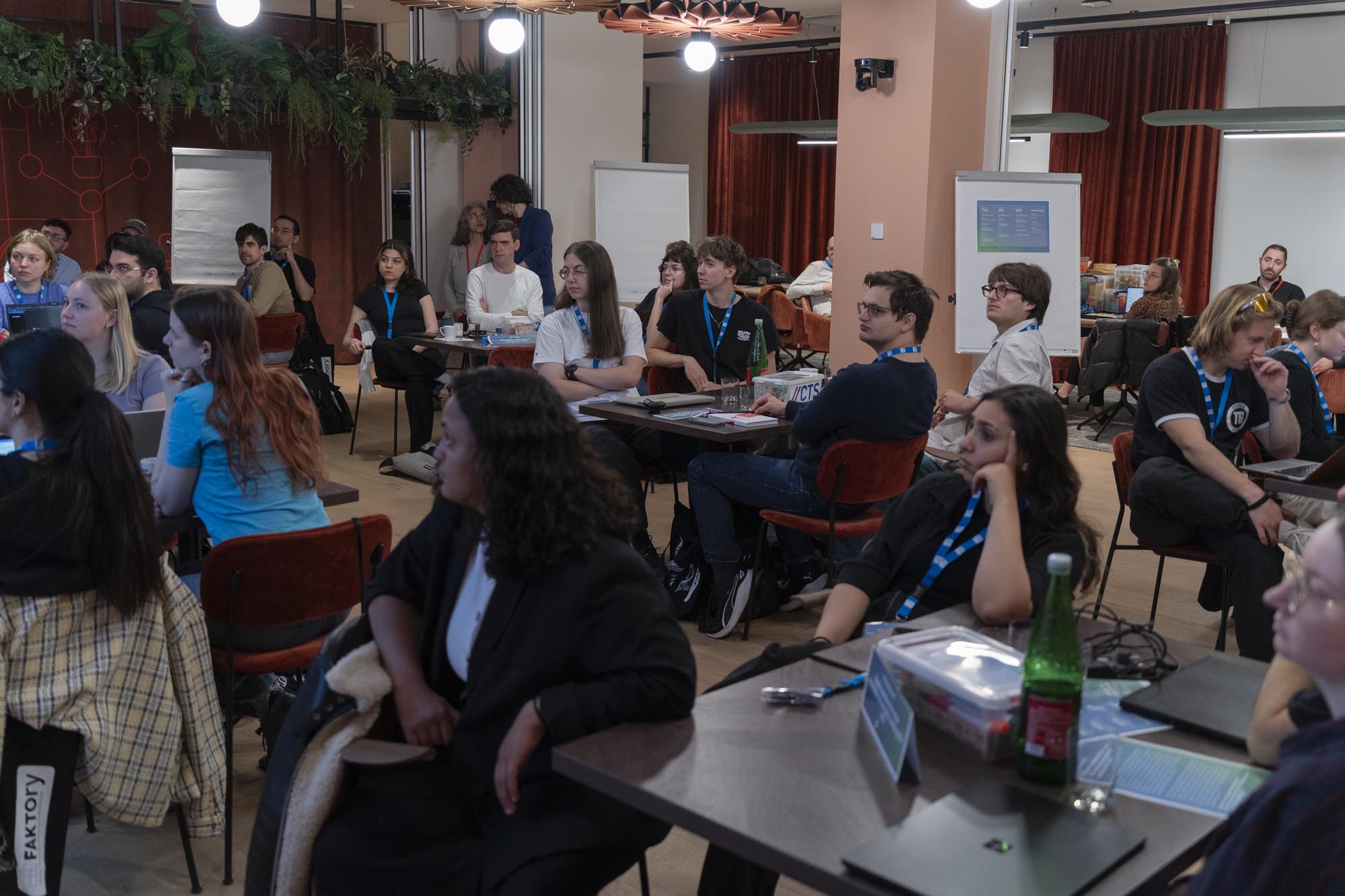
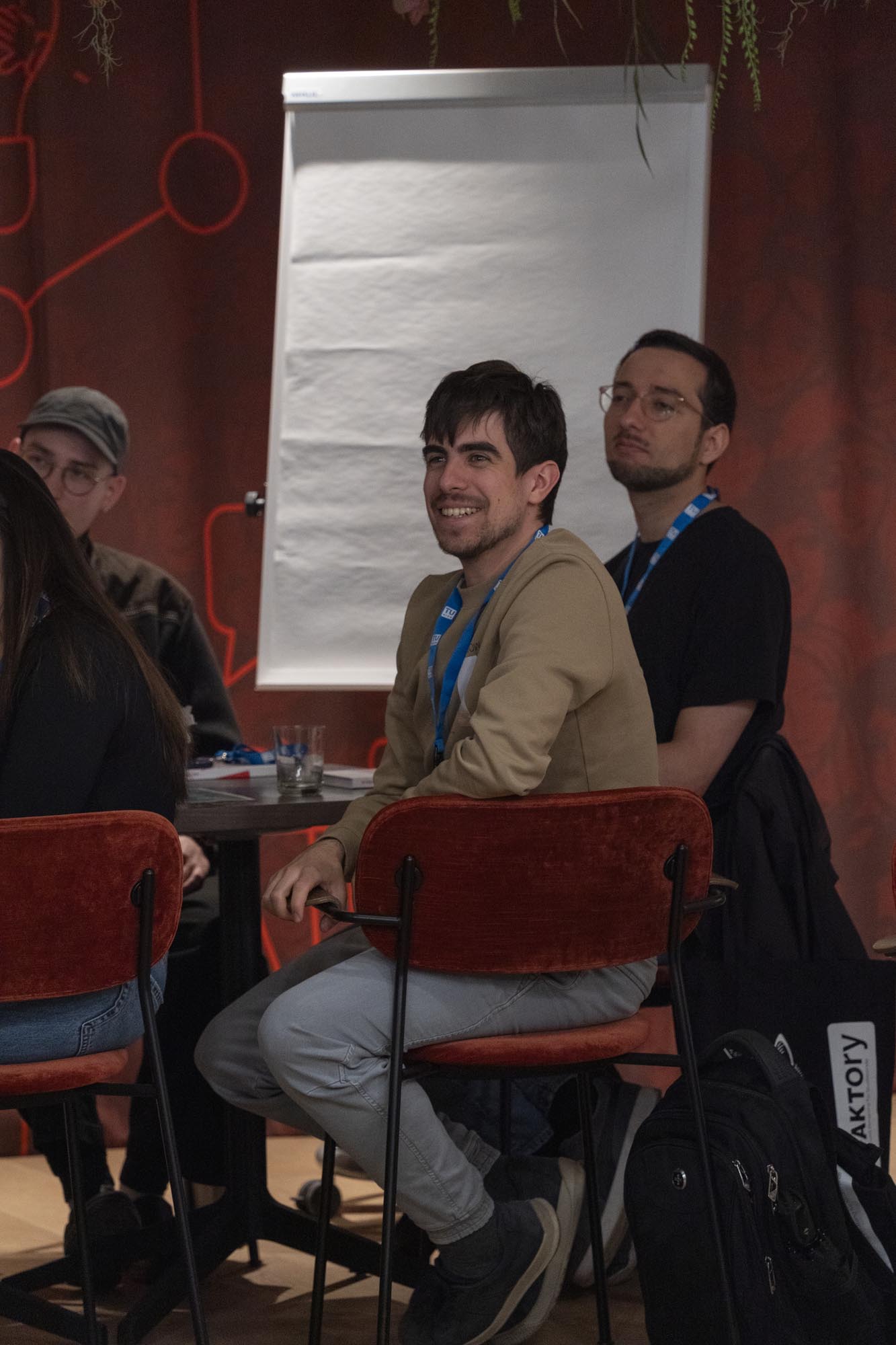
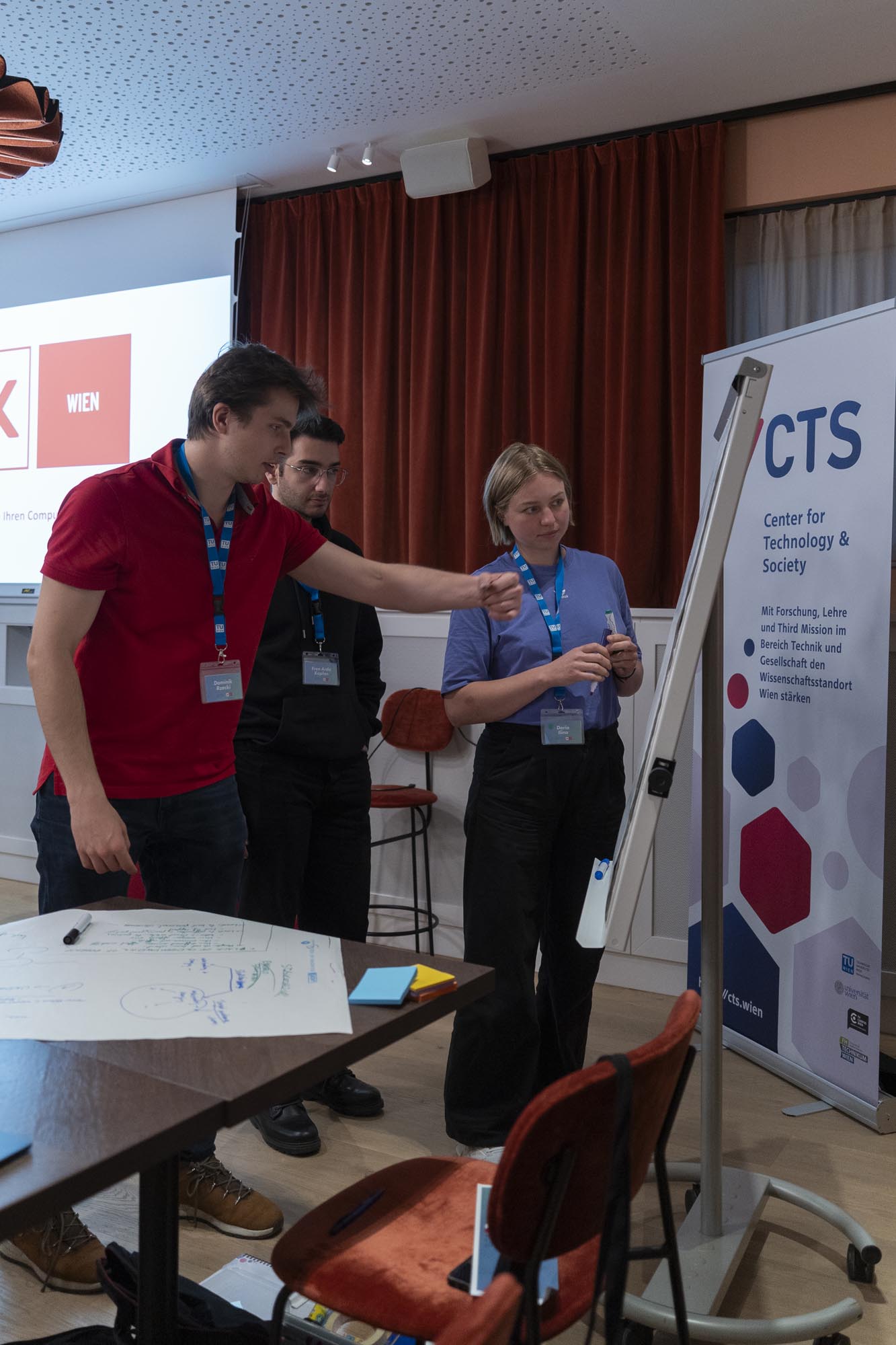
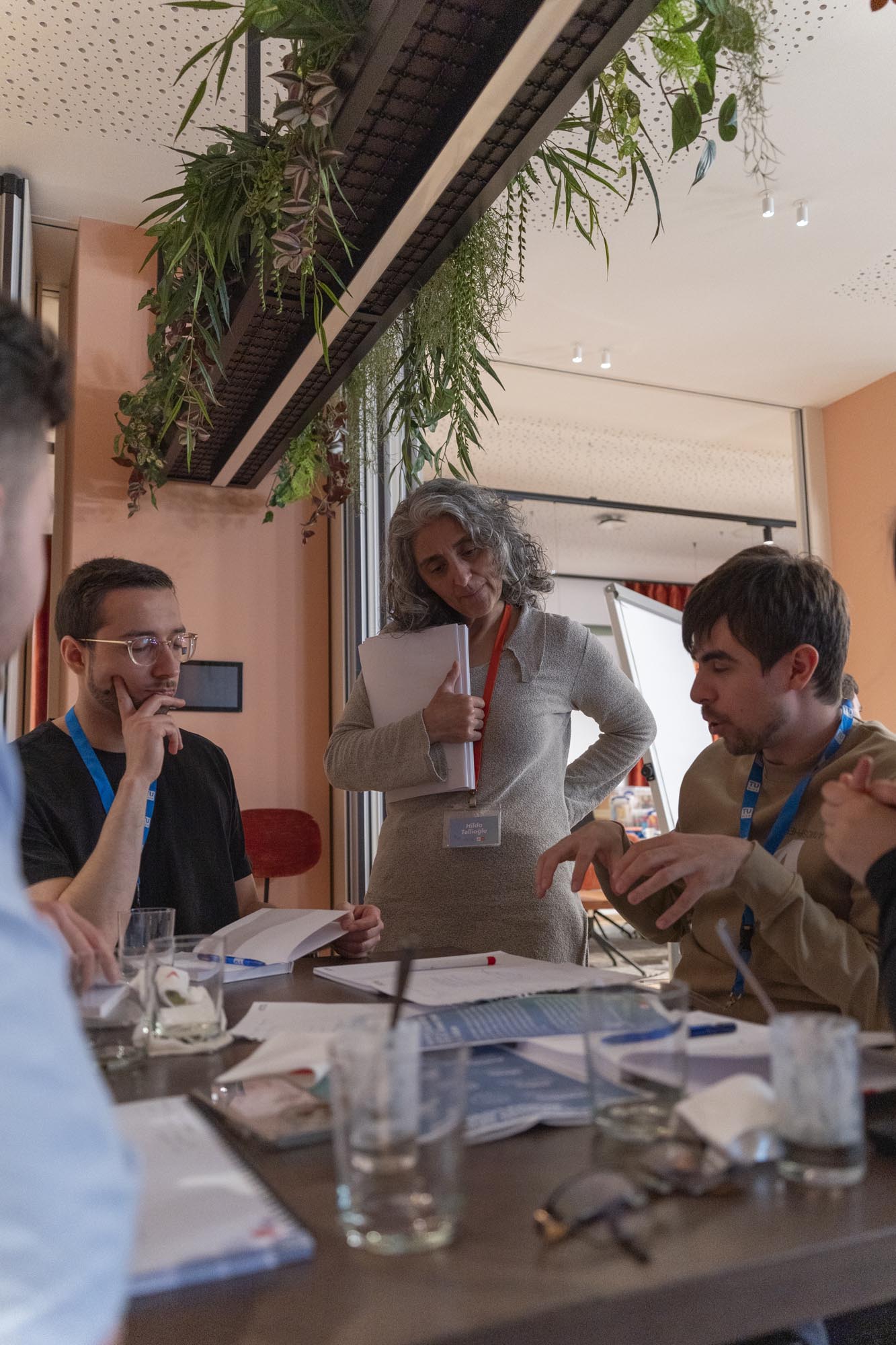
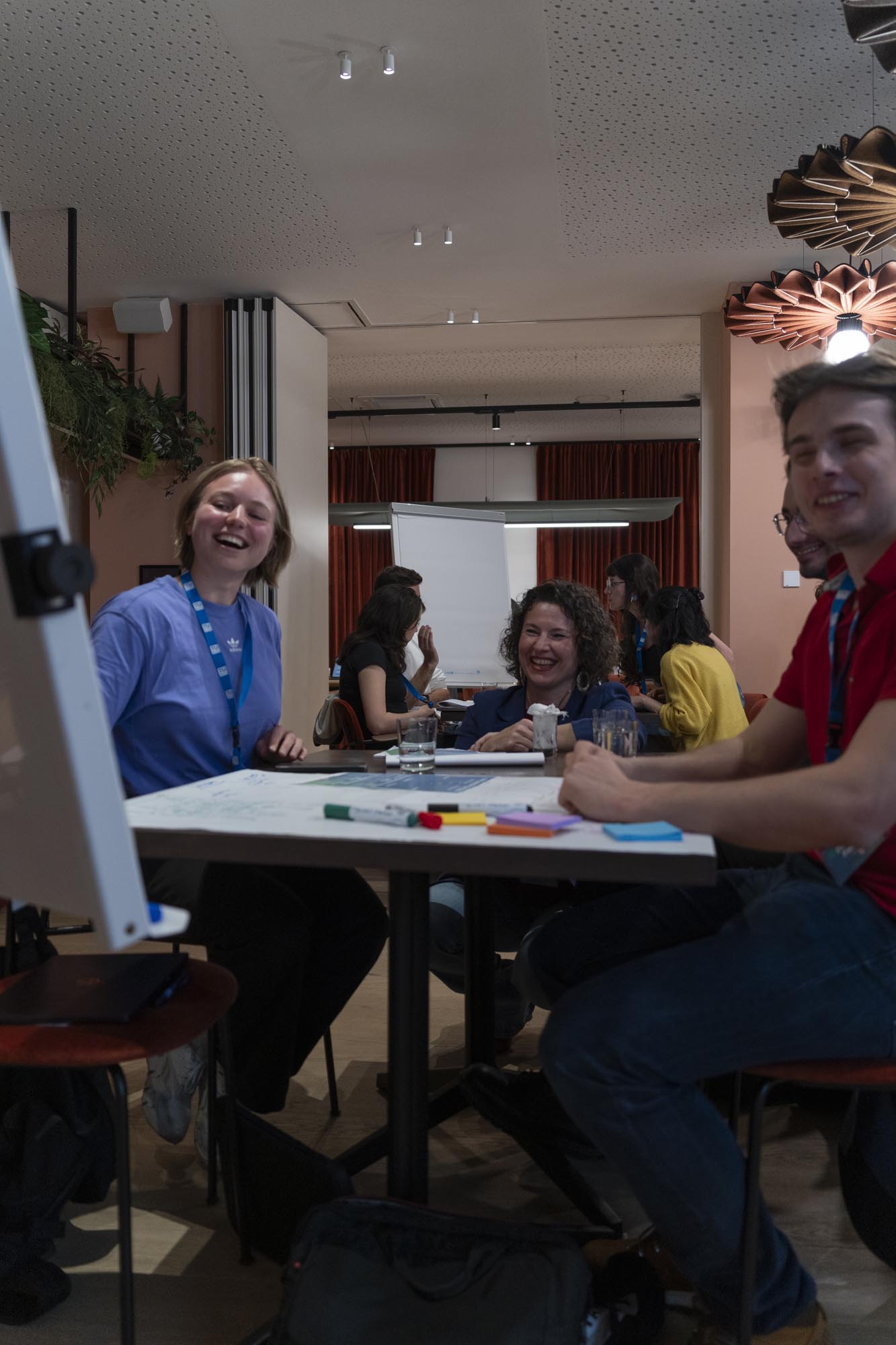
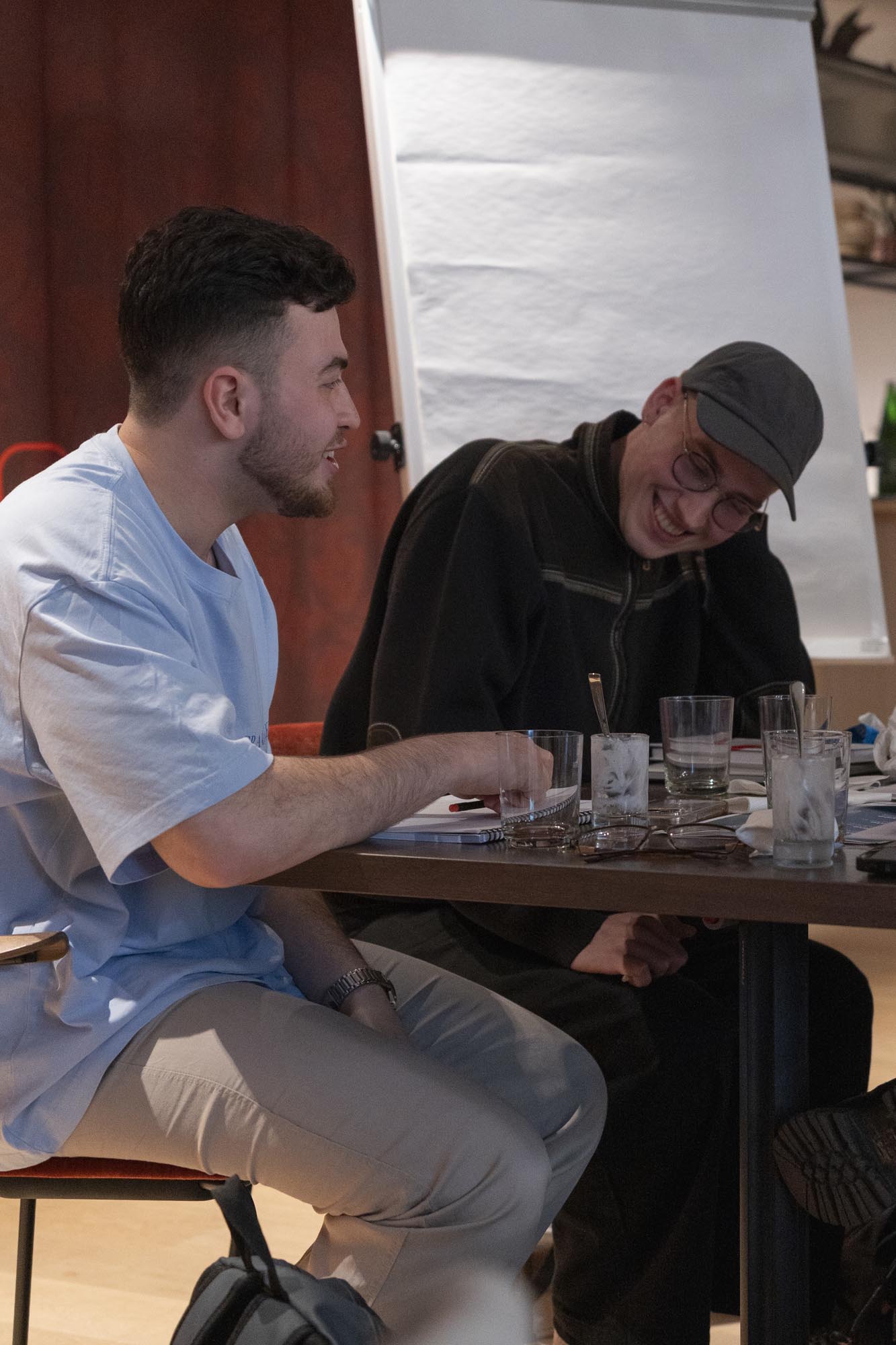
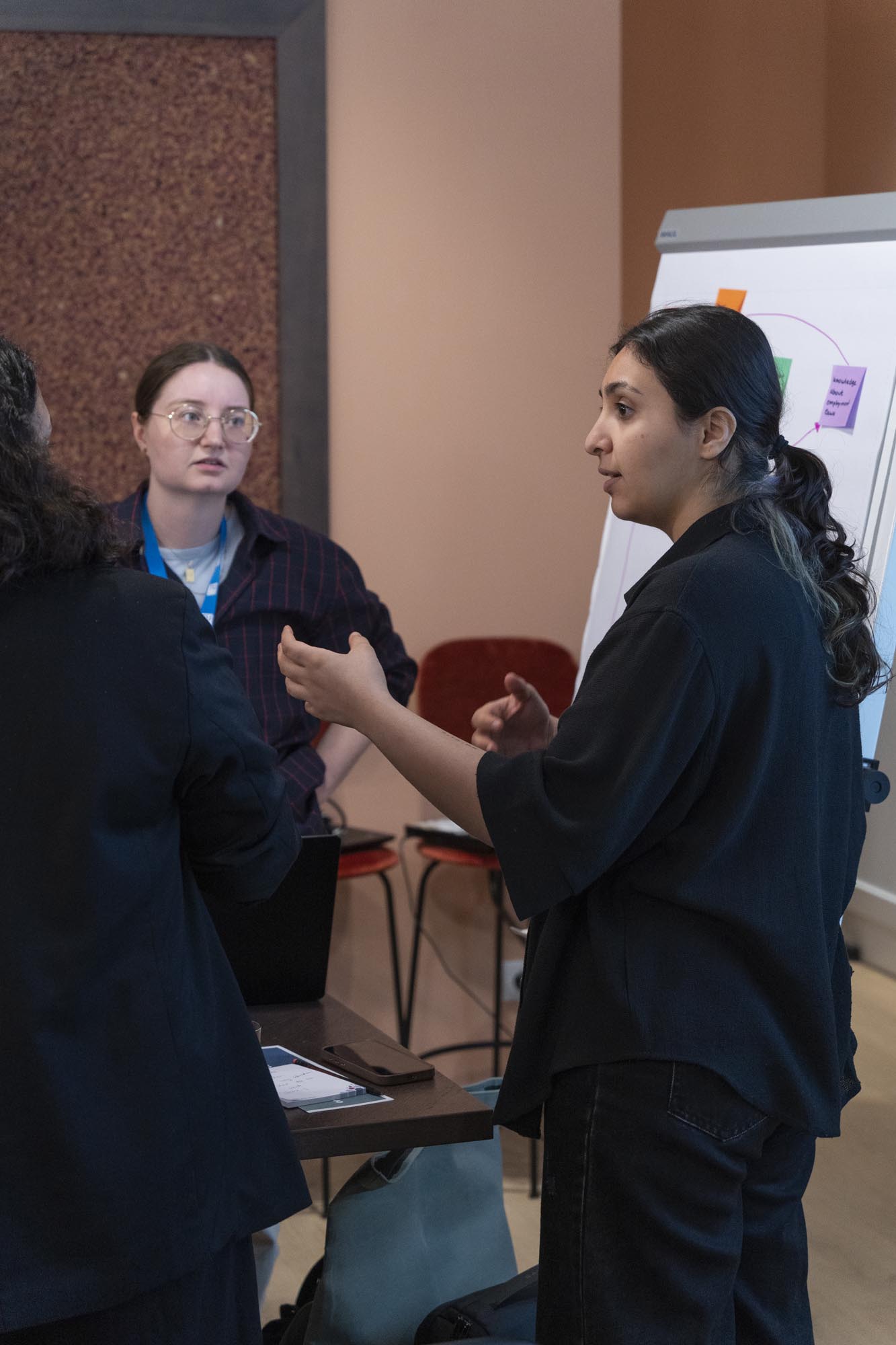
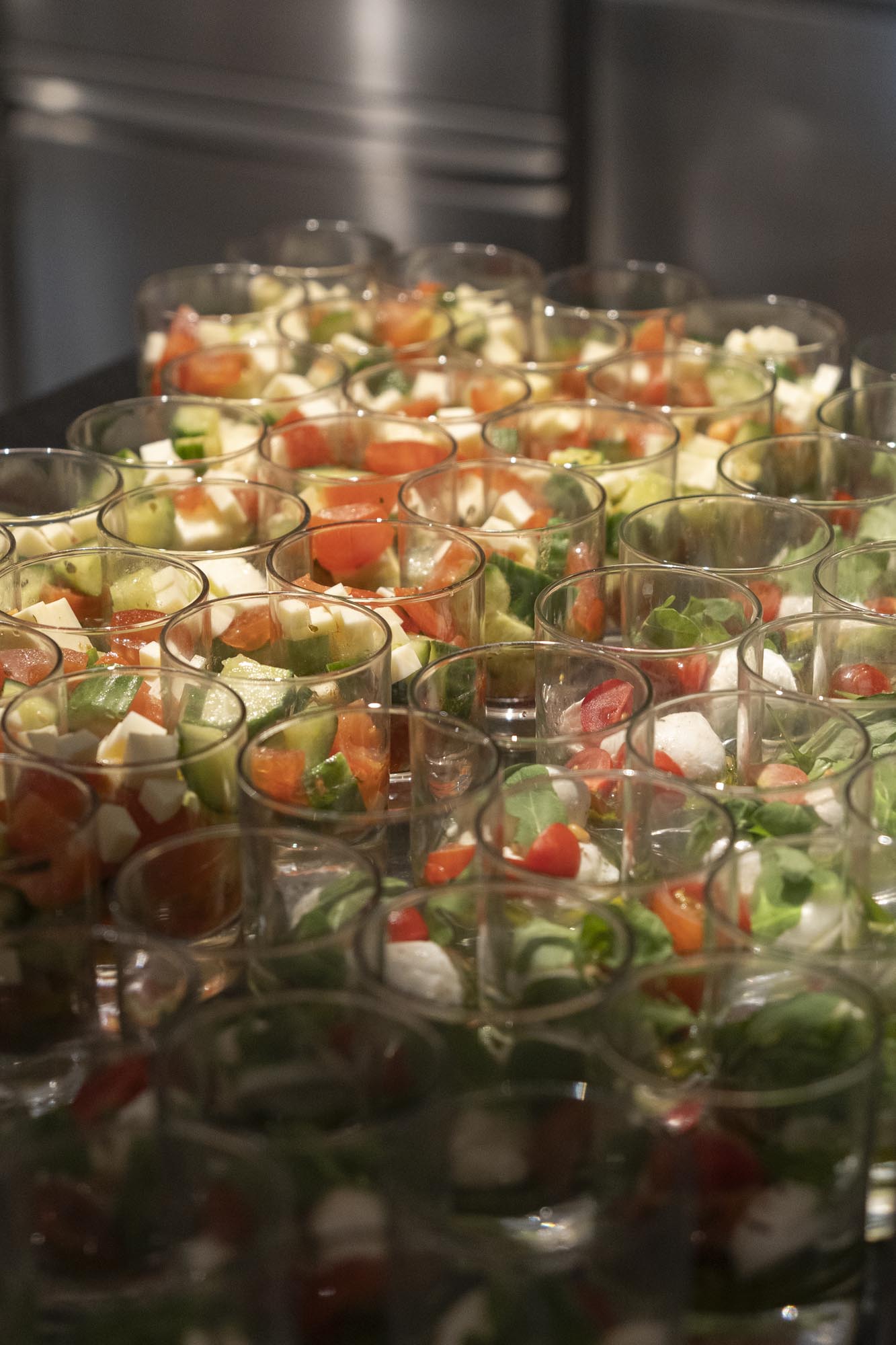
6 Challenges, 8 Teams, 2.5 Days of Innovation
Over the course of just two and a half days, eight teams from six different universities moved through the key phases of the Design Thinking process – from defining the problem to ideation, prototyping, and final presentation before an expert jury. The participants tackled six current challenges in the areas of employment, social services, industry, energy, and education – supported by mentors and professionals, as well as international guests from the University of Twente (NL). The event, which was held in English throughout, facilitated an easy exchange with the international students.
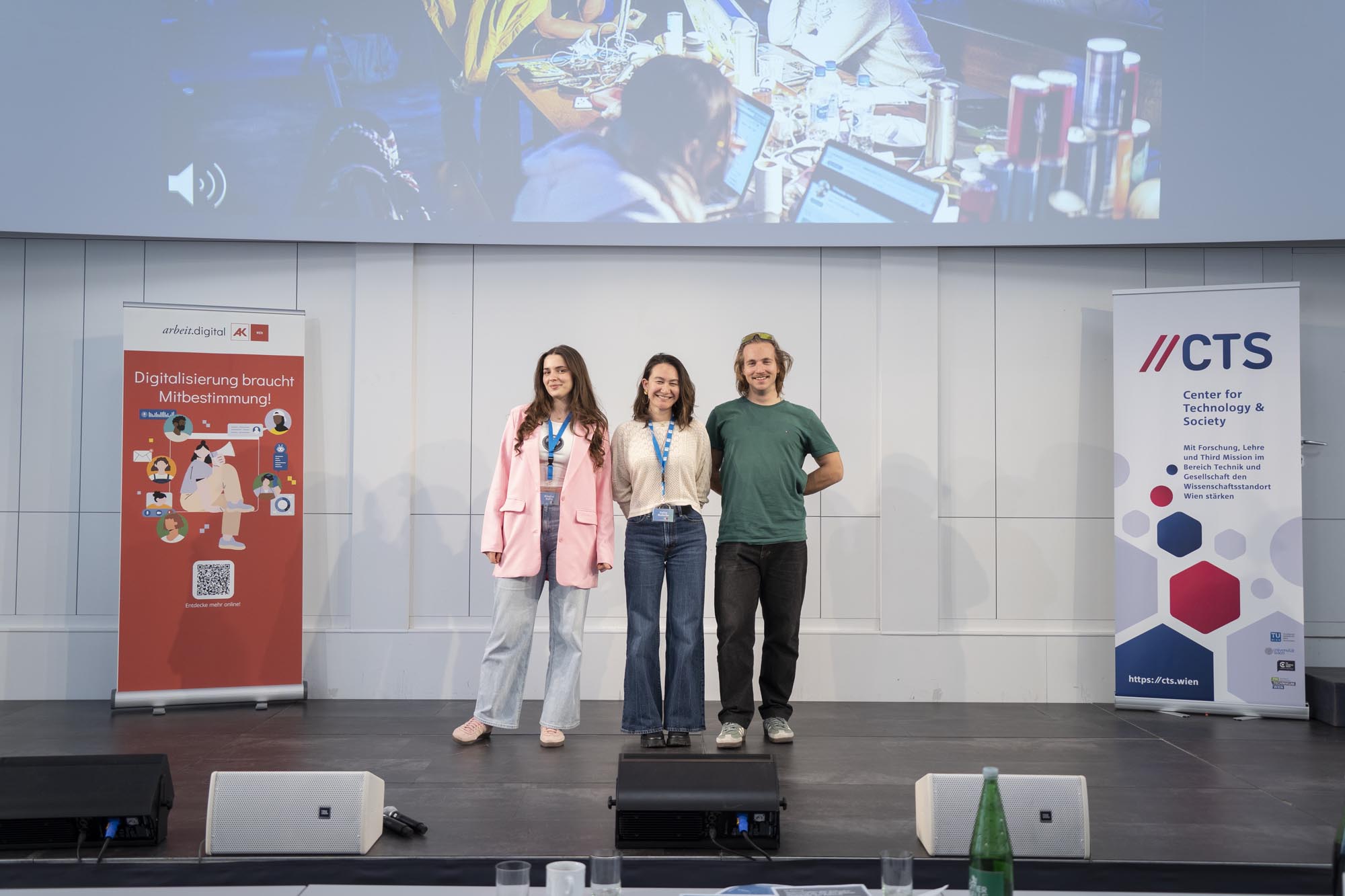
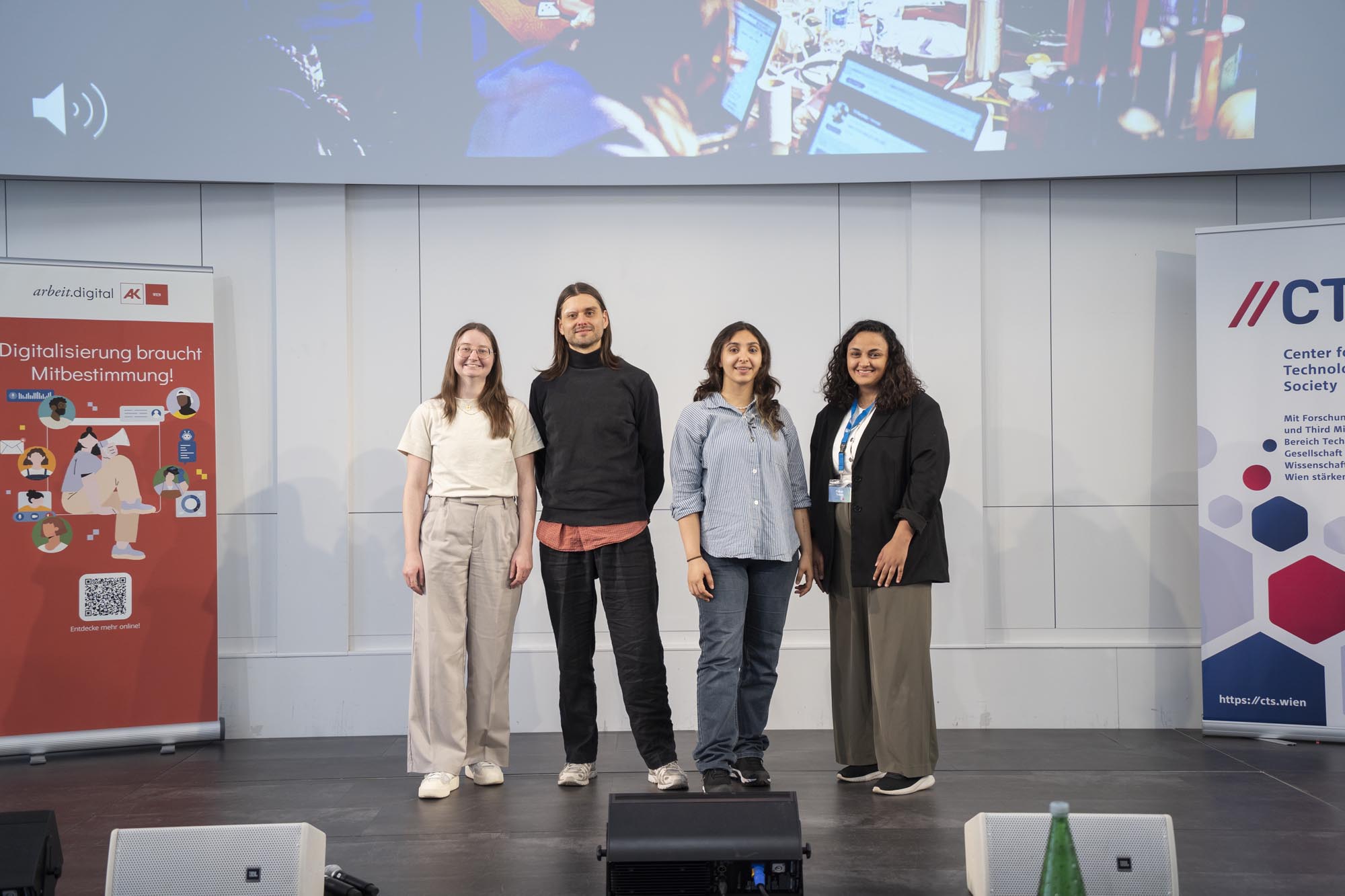
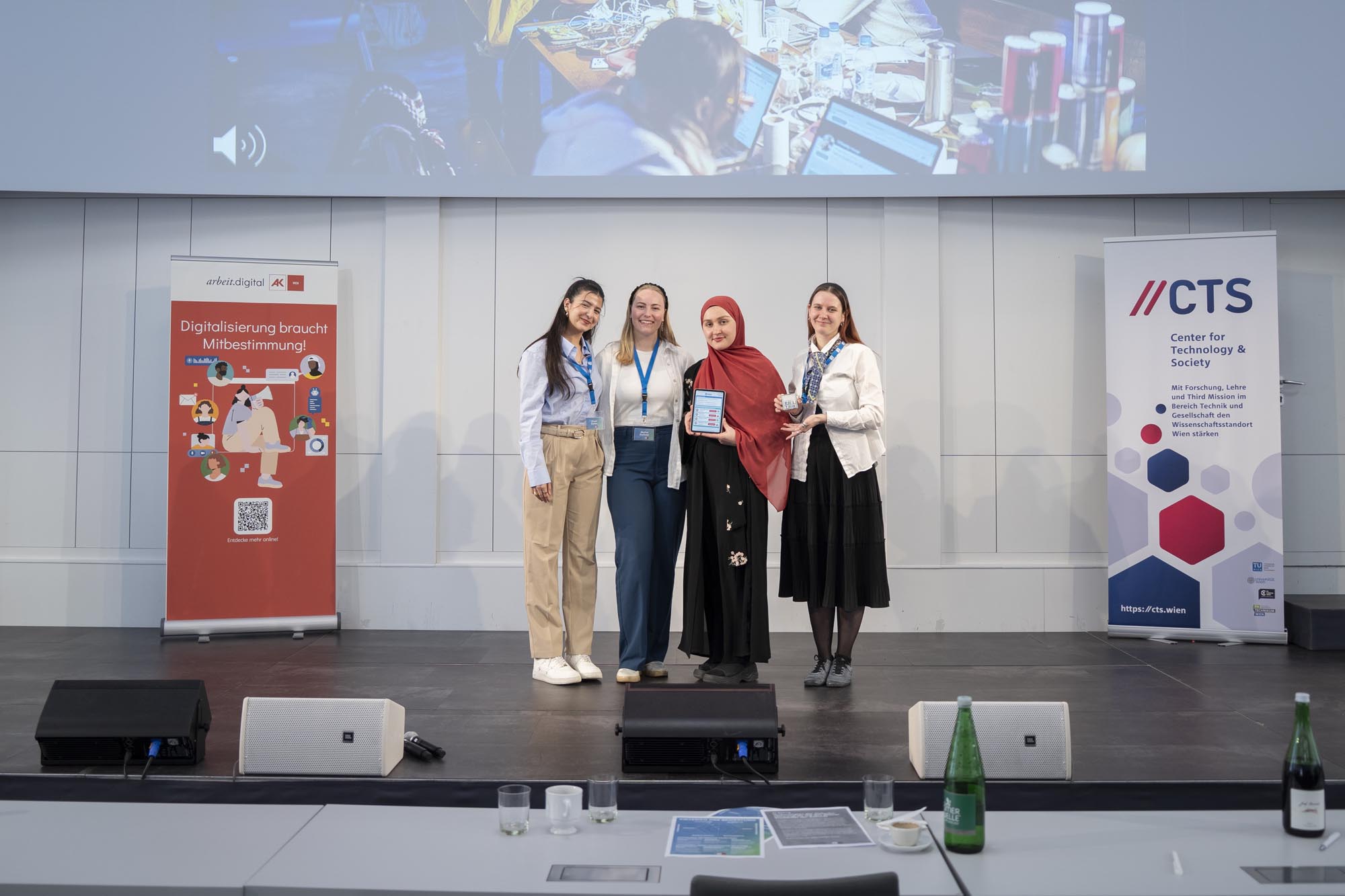
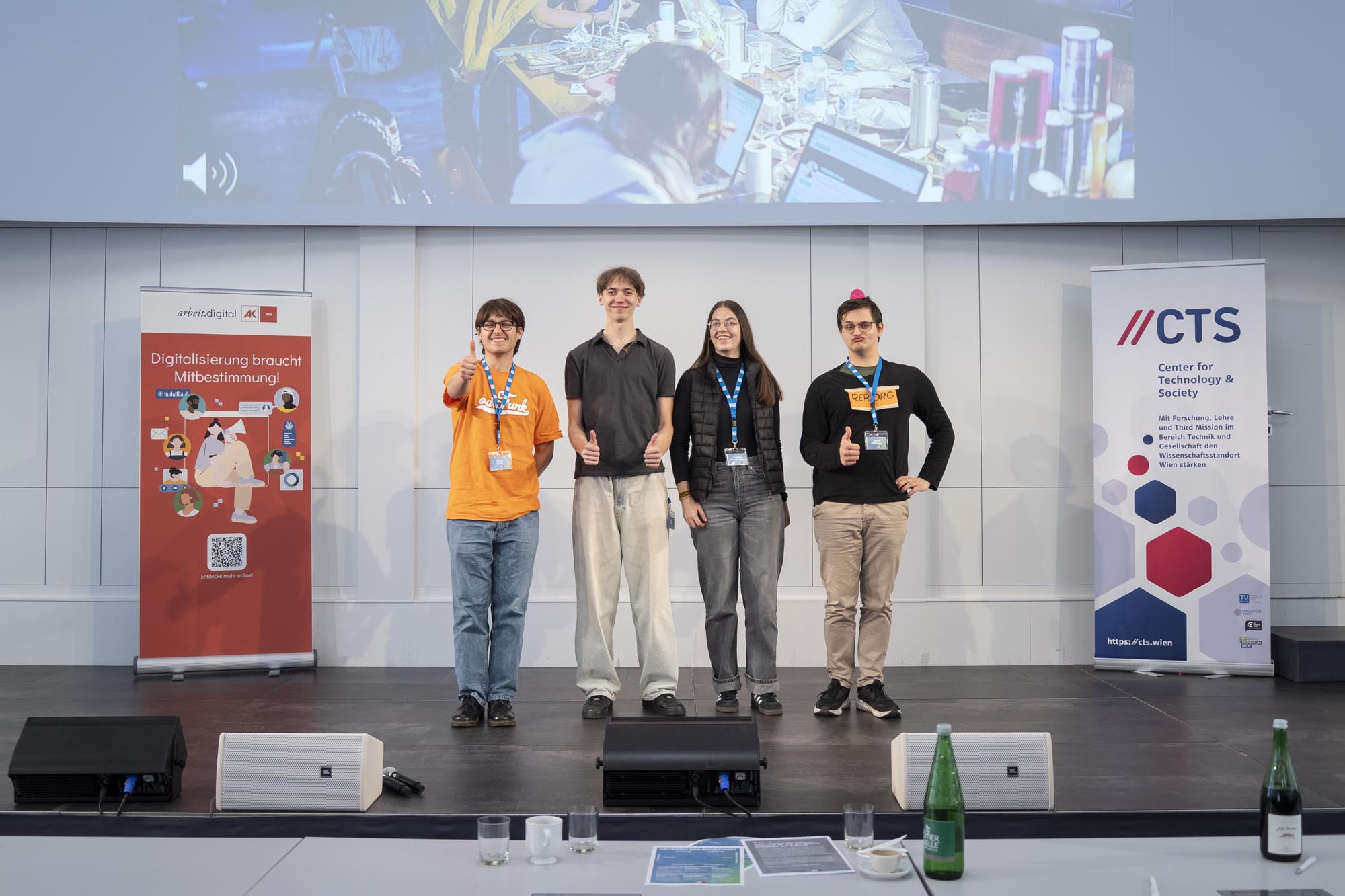
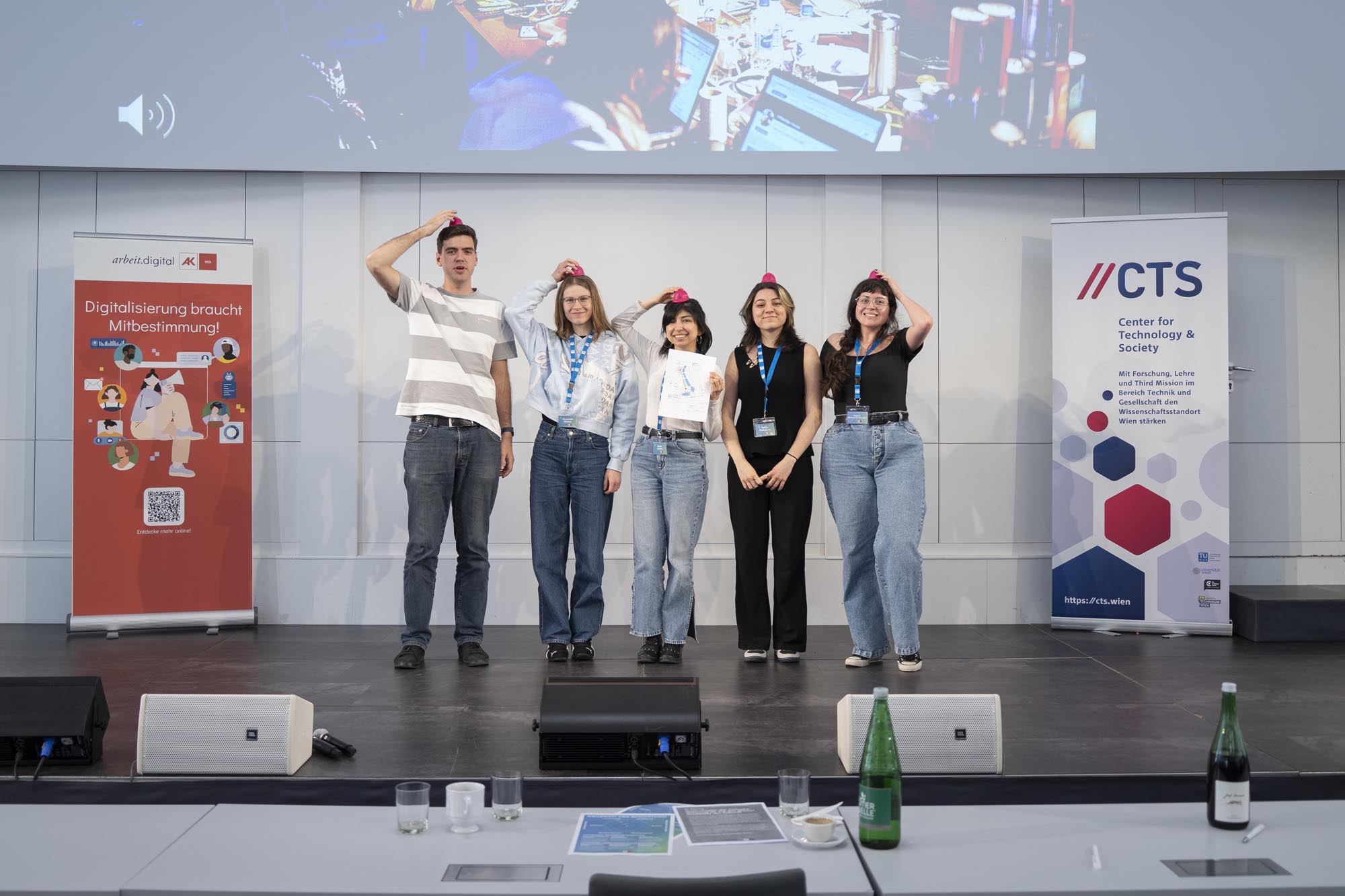
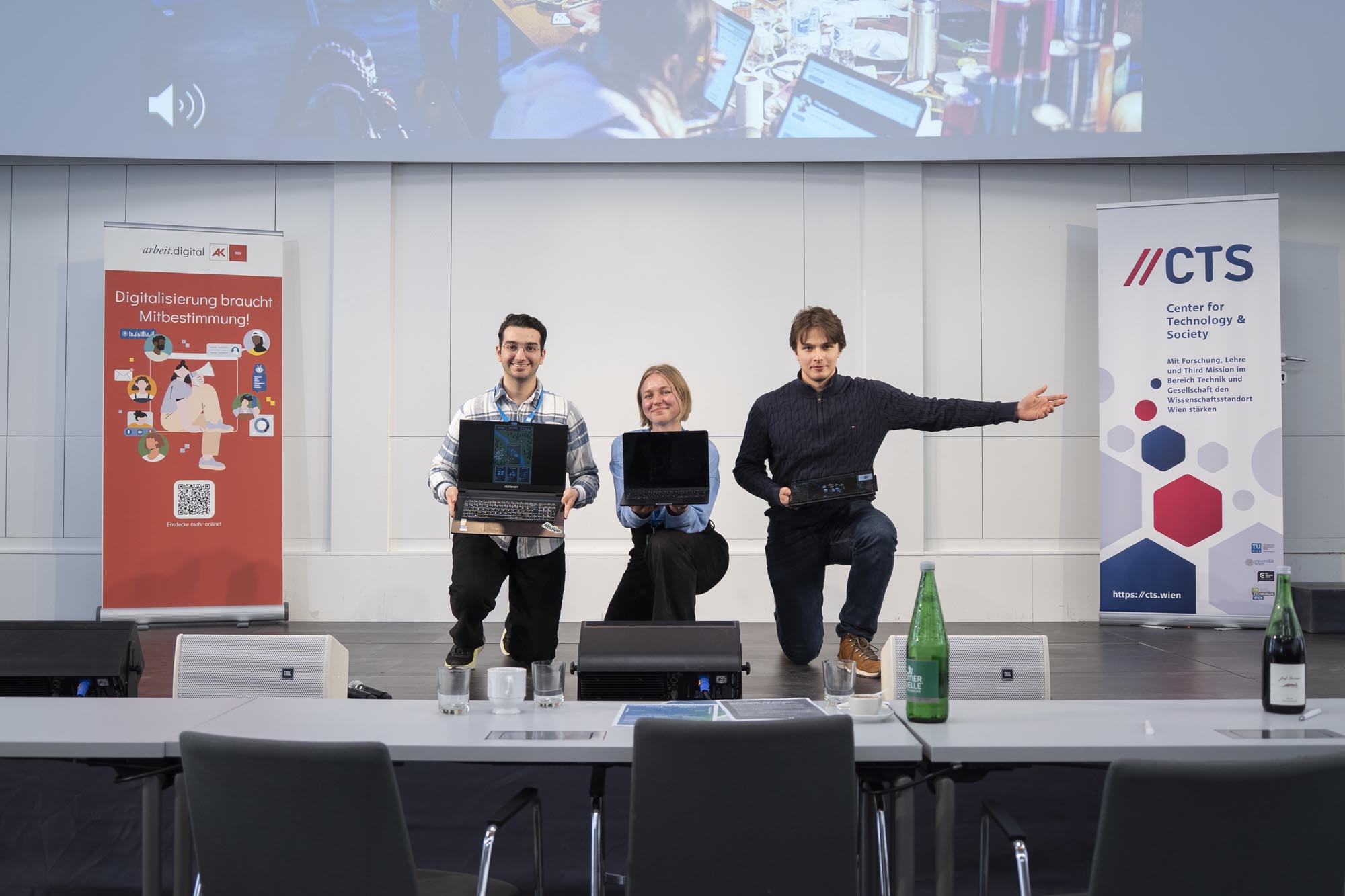
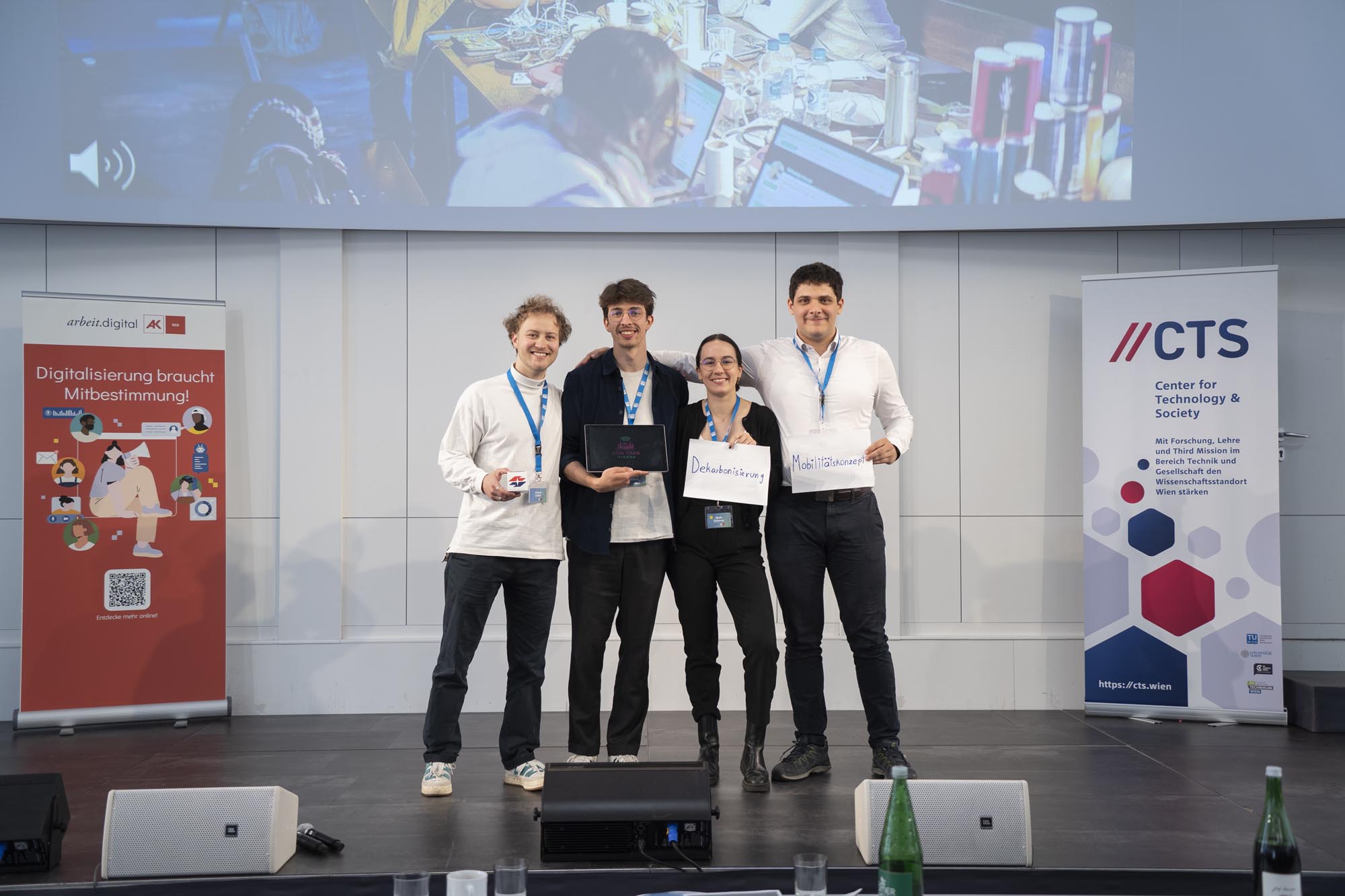
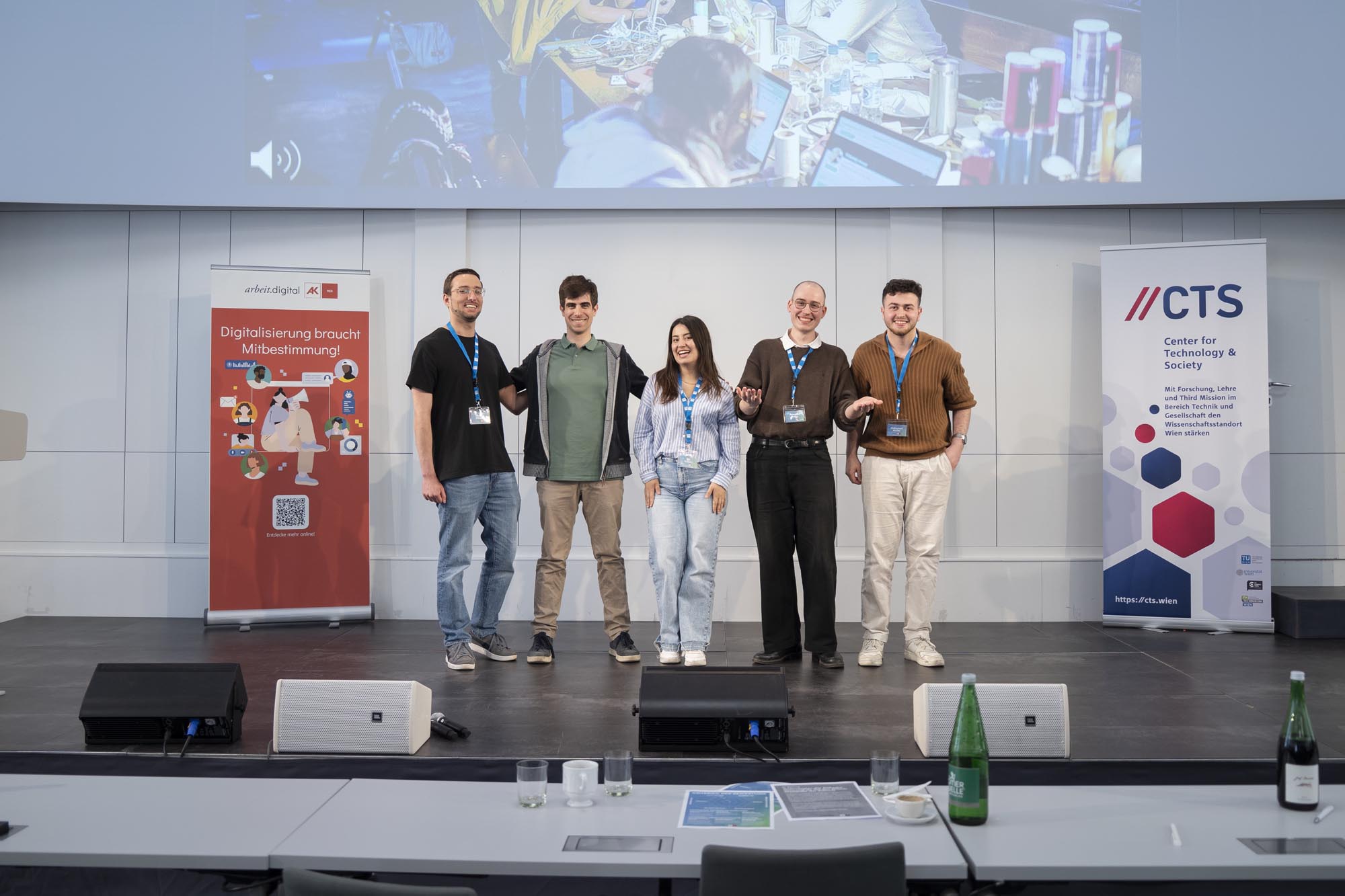
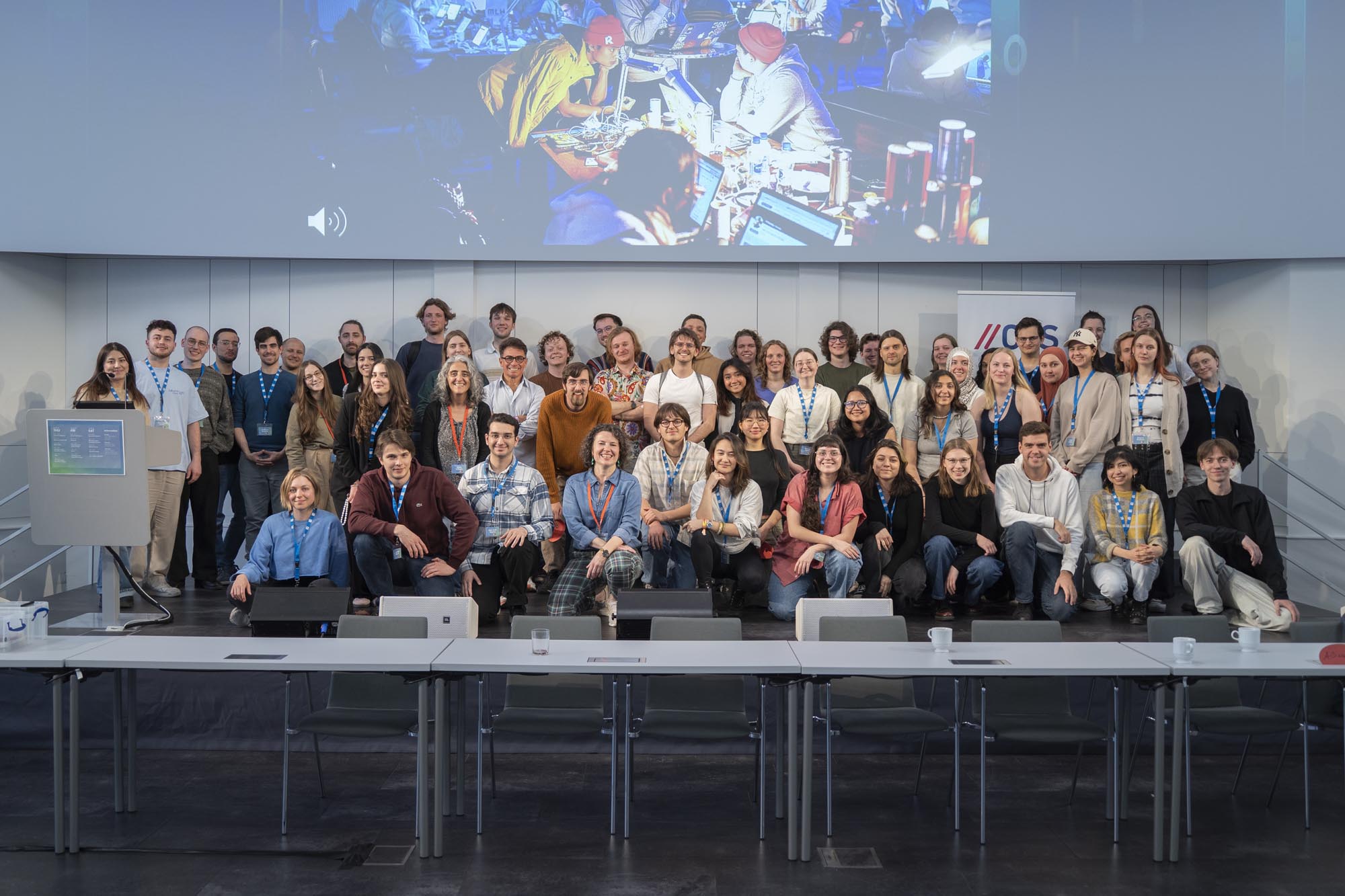
The Challenges at a Glance
- Challenge 1: Employment – Digital solutions for better orientation in everyday working life (A1)
(Making digital information more accessible & understandable)
How can digital tools help make complex information – such as on government websites – more understandable for people with limited reading or language skills? - Challenge 2: Employment – Digital solutions for better orientation in everyday working life (A2)
(Training labor law & digital services accessibly)
How can a digital application support people with little prior knowledge in understanding labor rights and gaining practical experience with digital government services? - Challenge 3: Social Services – Integrated digital support in long-term care
(Digital care support – integrated & practical)
How can a digital system effectively support caregivers in long-term care – without adding extra workload, but with meaningful integration into existing systems like ELGA? - Challenge 4: Industry – Privacy-compliant and independent communication for workers
(Secure communication for employee representation)
What could an open, privacy-friendly communication tool look like that enables easy and secure interaction for workers and employee representatives – independent of company platforms? - Challenge 5: Energy – Interactive, game-based engagement with tomorrow’s energy system
(Understanding the energy transition through play)
How can the energy transition become more tangible through interactive digital scenarios in which users take on the role of grid operators making real-world decisions? - Challenge 6: Education – Decarbonization technologies as part of Vienna’s future cityscape
(Making decarbonization visible in public space)
How can technologies such as photovoltaic systems or heat storage be integrated into Vienna’s urban landscape in ways that are functional, sustainable, and culturally sensitive?
Diverse Solutions for Complex Challenges
The range of projects developed reflected the variety of topics – from practical assistance in working life to creative approaches to shaping the city of the future:
- JobNavAT: A digital assistance tool designed to help people with limited language or reading skills understand work-related information in Austria – through simplified text, translated forms, and interactive step-by-step guides. Based on a local AI framework, it addresses everyday questions around residence status or labor law.
- AK Hub: An interactive learning game in which users assist fictional characters with labor-related challenges – learning in the process how to navigate real-world institutions and understand their rights in a playful, low-barrier format.
- PRISM: A digital app designed to support caregivers with daily documentation tasks. Through intuitive to-do lists, medication overviews, and daily reports, it helps structure care work while integrating smoothly with existing systems.
- REPetORG: A privacy-compliant communication platform for employee representatives and workers that enables secure, independent, and low-threshold interaction. It strengthens self-organization, supports co-determination, and builds trust in workplace representation.
- SmoothOperator : A learning game where users act as virtual grid operators, building and managing their own power grid while tackling key aspects of the energy transition. The game impressed with its technical sophistication and wide applicability.
- Banana Energy: A mobile strategy game that encourages reflection on energy policy in a playful way. Players manage an energy system and make decisions balancing environmental, economic, and supply-related priorities – ideal for educating the next generation on complex decision-making processes.
- InTECHration: An interactive design tool that invites citizens to help shape urban infrastructure – using solar roofs as a starting point, but expandable to topics like urban greening or mobility. It aims to combine decarbonization, aesthetics, and public participation.
- Low Carb Vienna: A concept for the visible and aesthetically integrated use of decarbonization technologies in Vienna’s cityscape. It merges climate protection, urban design, and education by making energy technologies a tangible part of public life.
Awards for Outstanding Projects
At the end of the sprint, the teams presented their projects to a jury consisting of Sylvia Geyer (Rector, FH Technikum Wien), Gudula Feichtinger (Palfinger AG), Anna Raith (AK Wien), Helene Baumgartner (AK Wien), and René Röpke (LTeD Research Lab).
- Social Impact Award: The award went to the team behind PRISM, recognized for developing a practical and easy-to-use tool that supports long-term care workers in their daily routines. The jury highlighted its strong user focus and social relevance – a valuable contribution to dignifying care work.
- Technical Excellence Award: Presented to Smooth Operator, whose sophisticated gameplay communicates the technical, economic, and social dimensions of the energy transition in a realistic and engaging way. The jury praised the project’s professional execution and educational potential.
Both winning teams received a prize of €500 per participant.
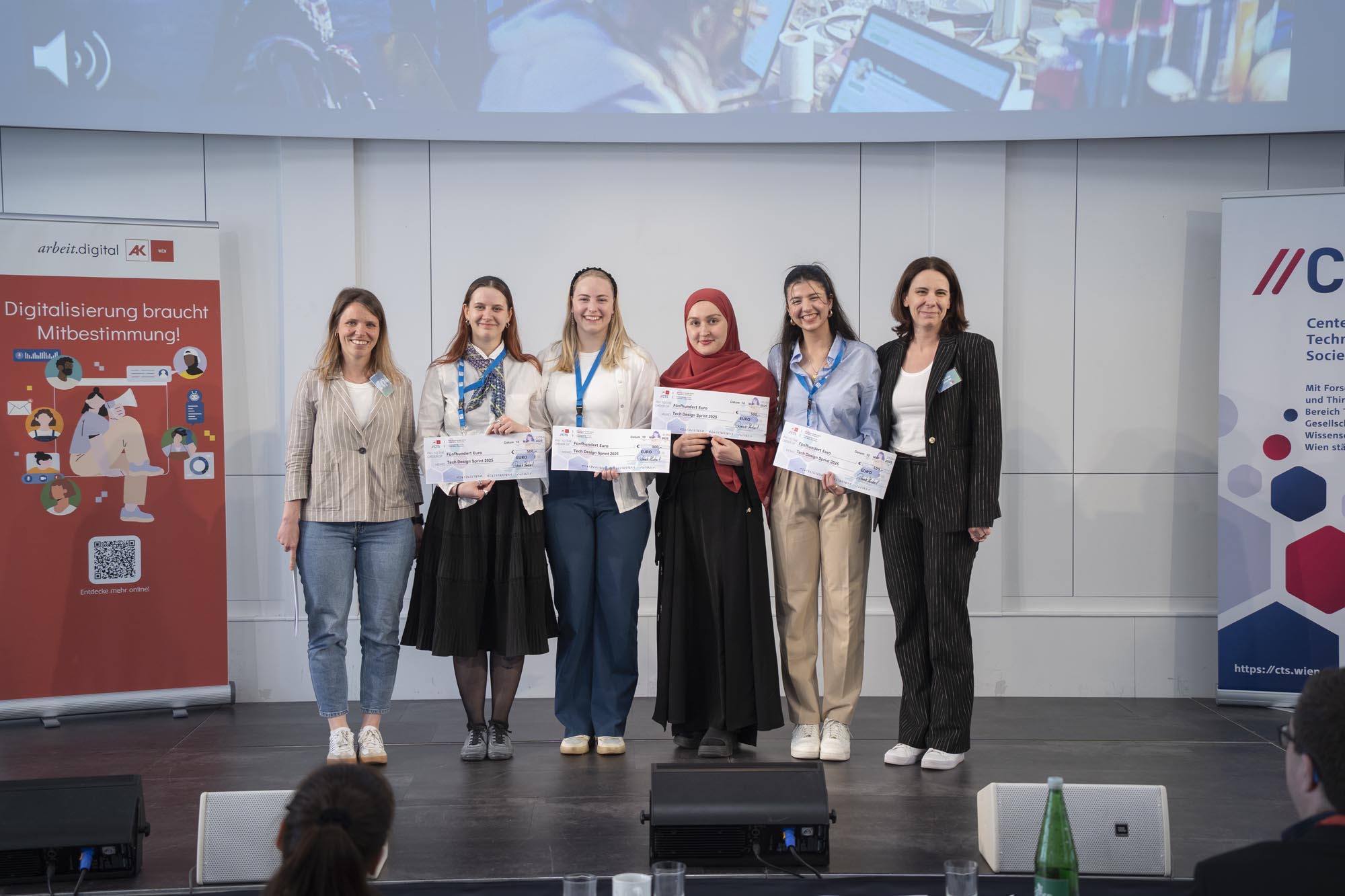
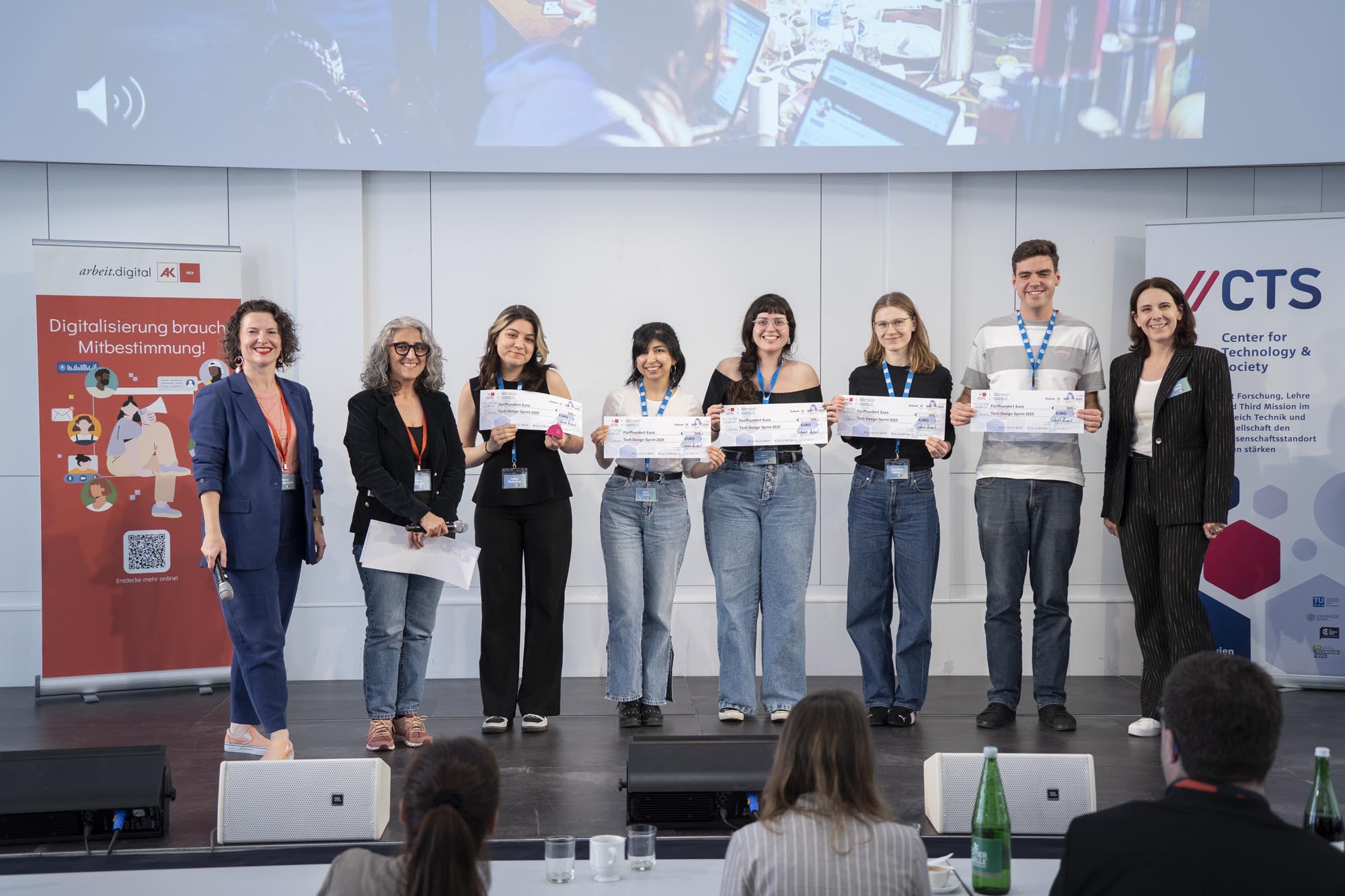
Kollaboration, Reflexion und Ausblick
In addition to intensive project work, there was space for exchange, networking, and critical reflection. Participants used the opportunity to learn from each other, develop shared visions, and gain fresh perspectives on technology and society. The closing event offered time to celebrate, reflect, and deepen conversations.
CTS and AK Wien thank all contributors – from students and experts to the jury – for their commitment, inspiring input, and the good vibes.
The quality and diversity of ideas presented during the Tech Design Sprint 2025 clearly demonstrated: this format holds great promise – and there’s every reason to believe it won’t be the last of its kind!
This type of format can provide impetus for further events and collaboration and can therefore be a starting point for innovative follow-up projects.
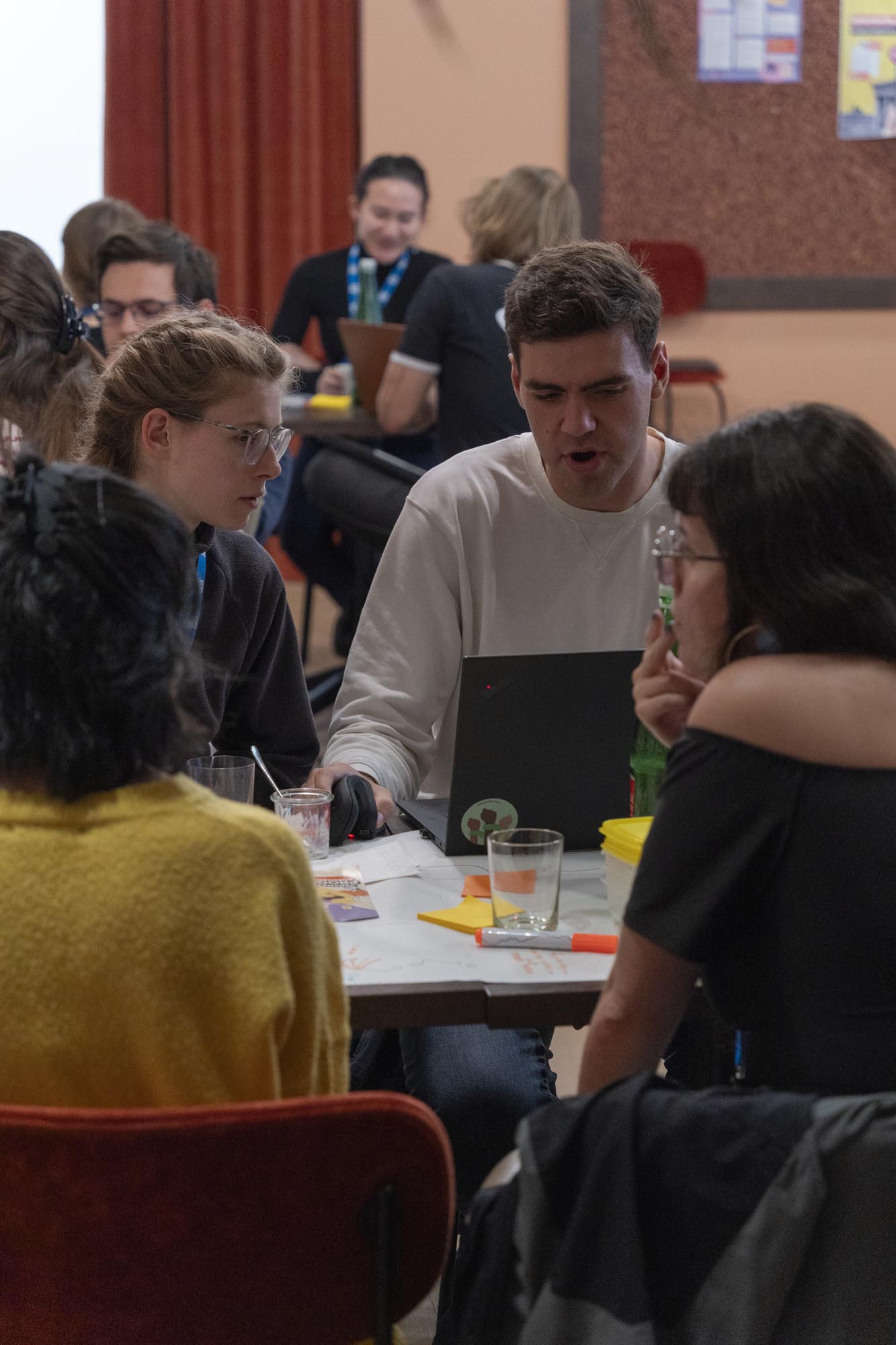
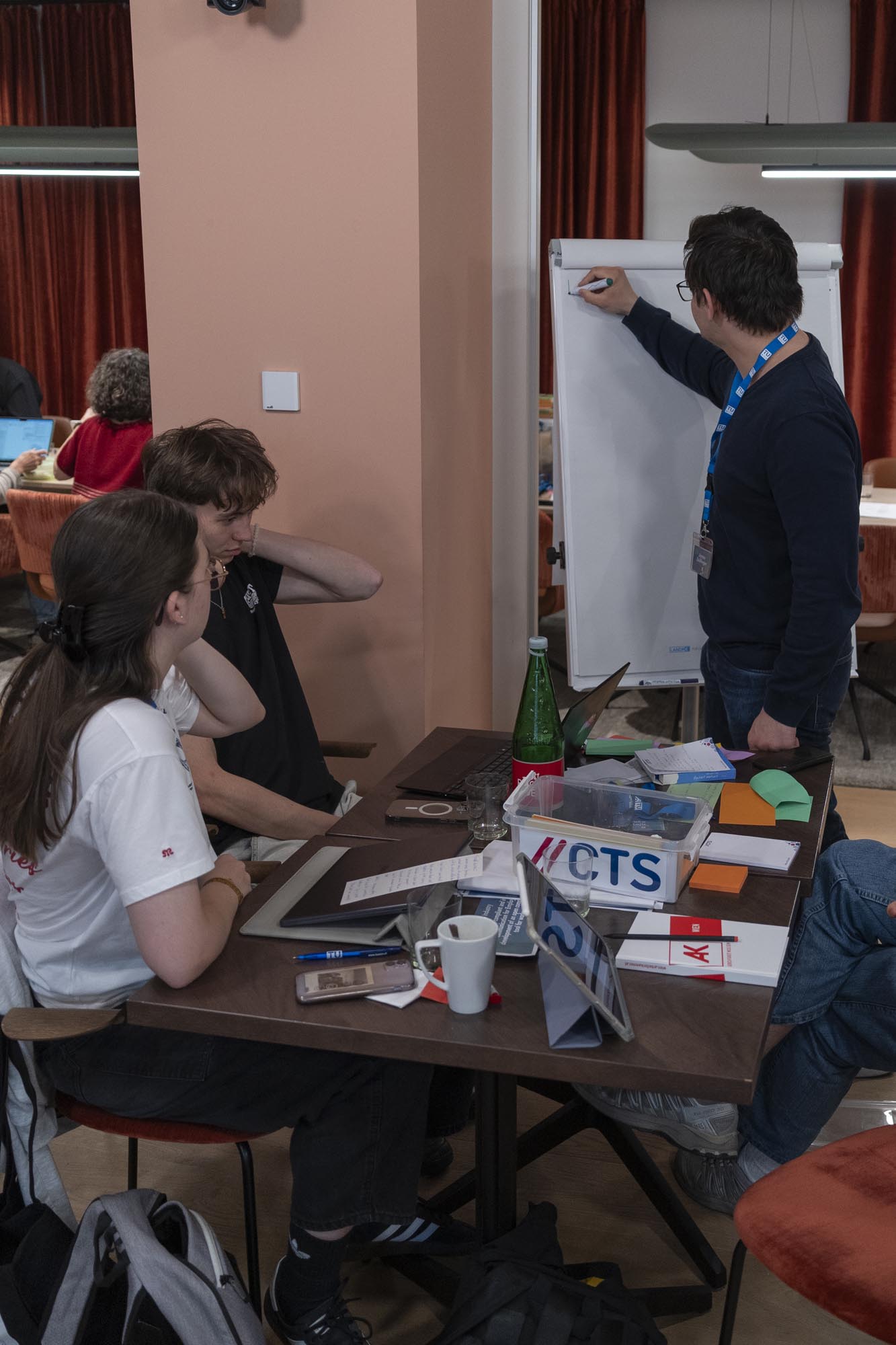
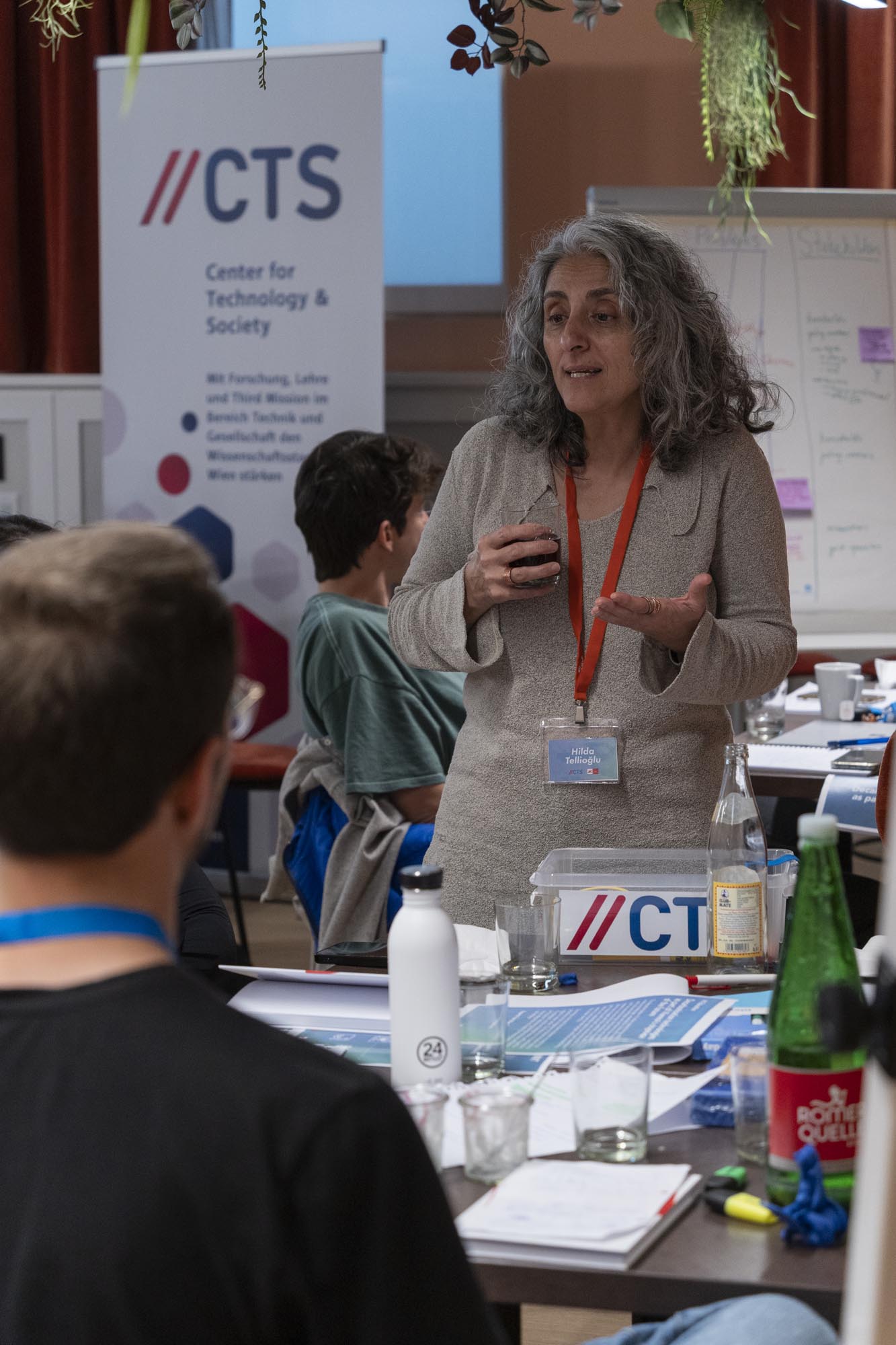
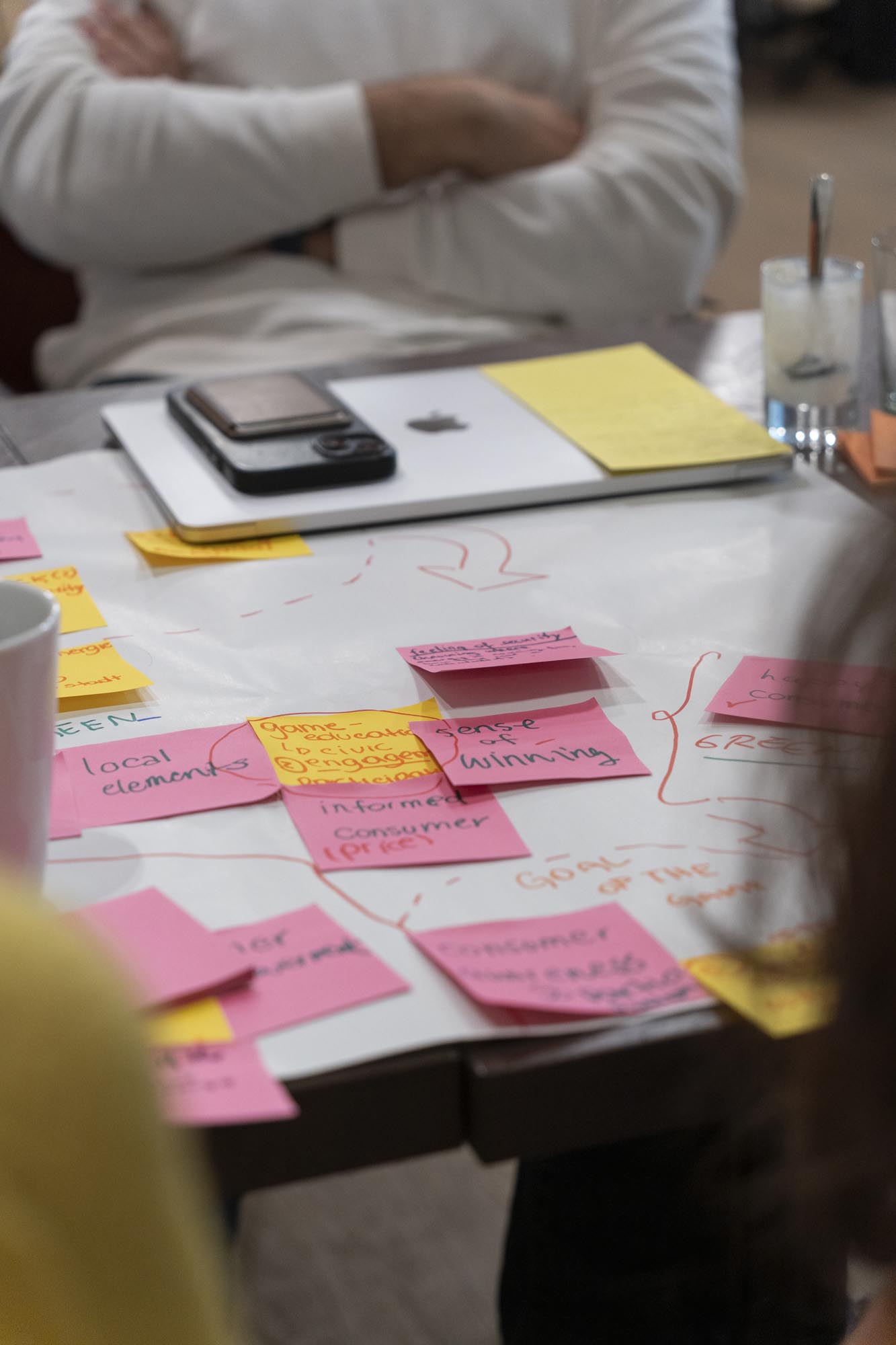
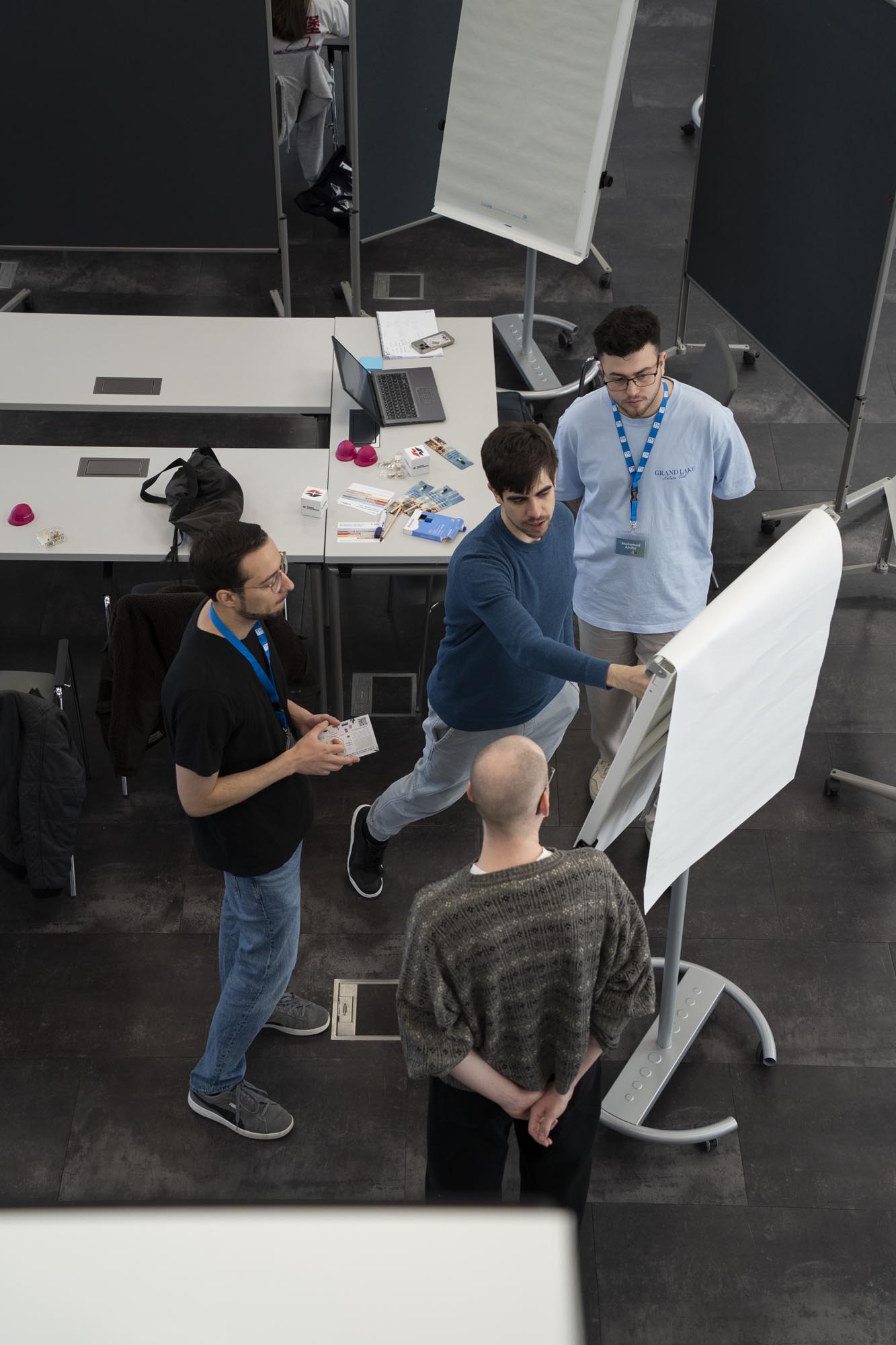
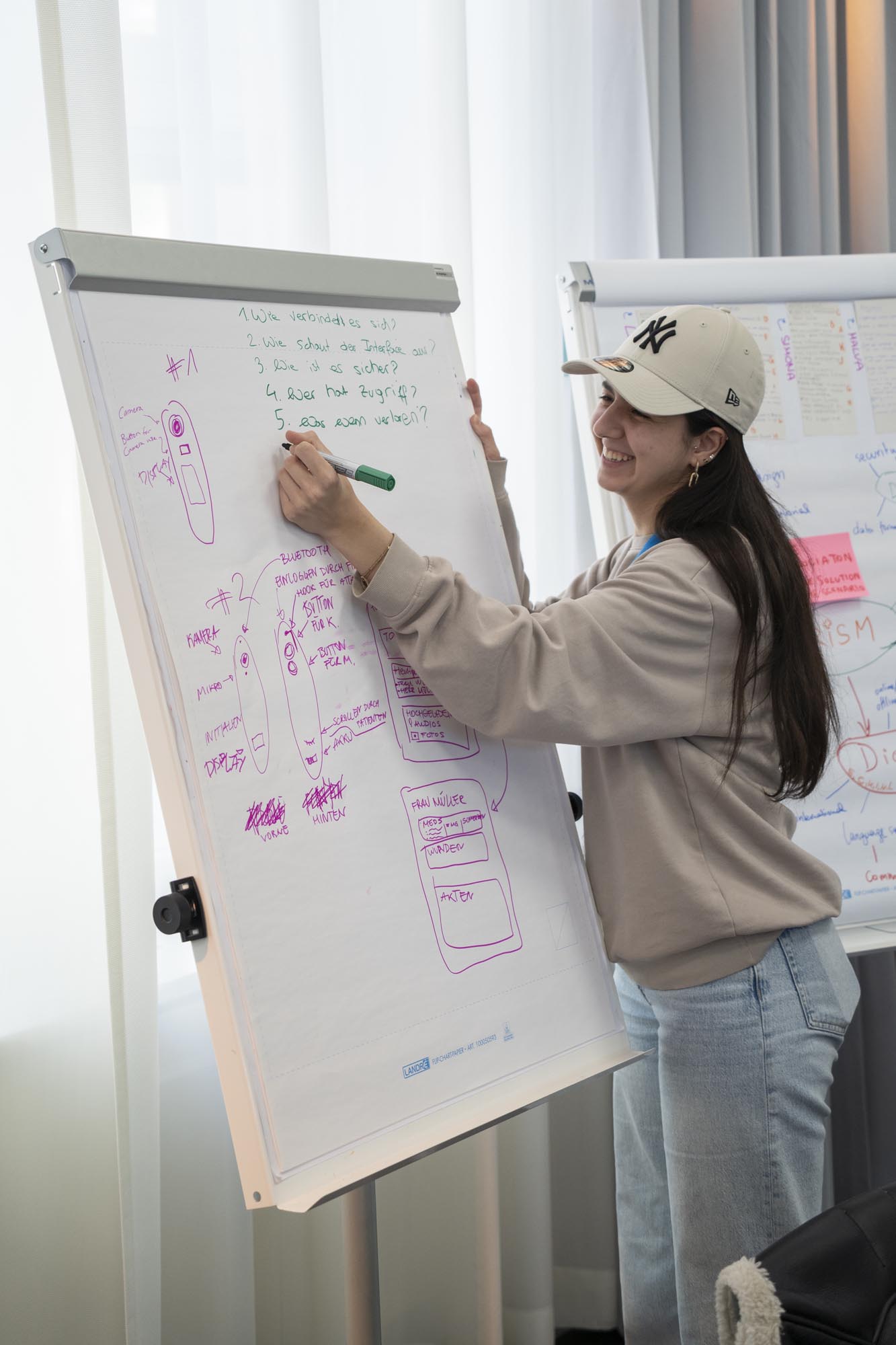
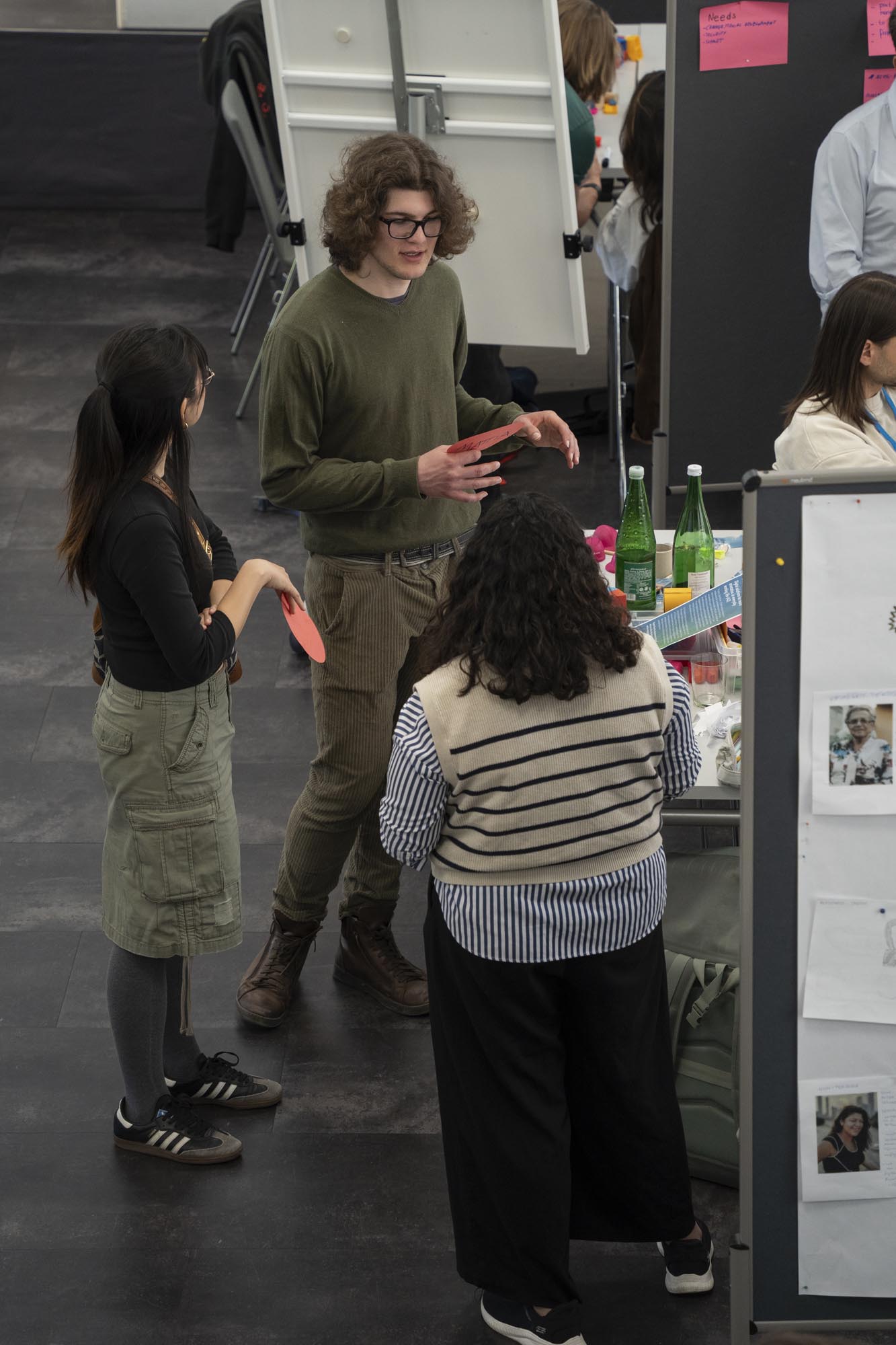
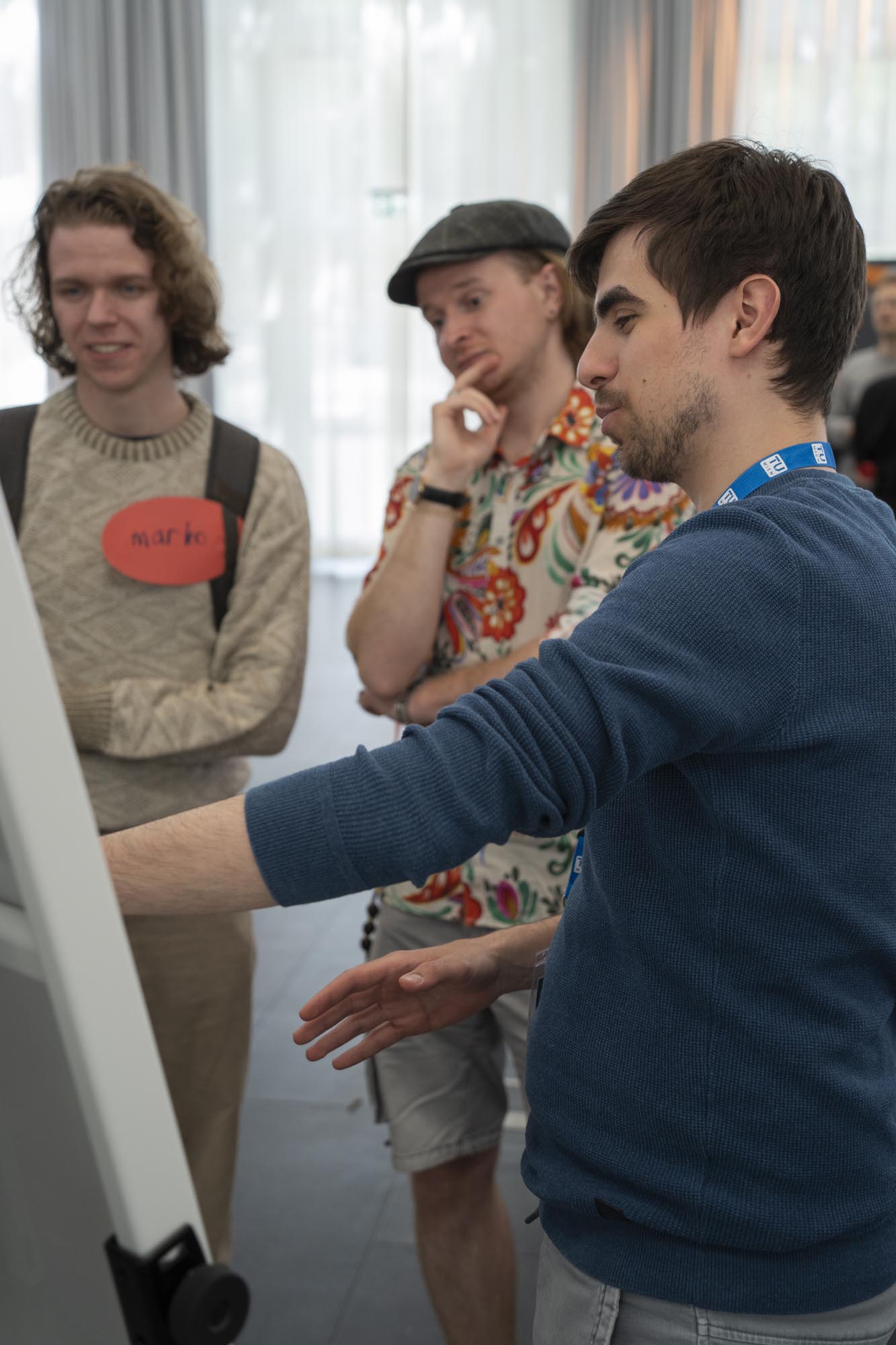
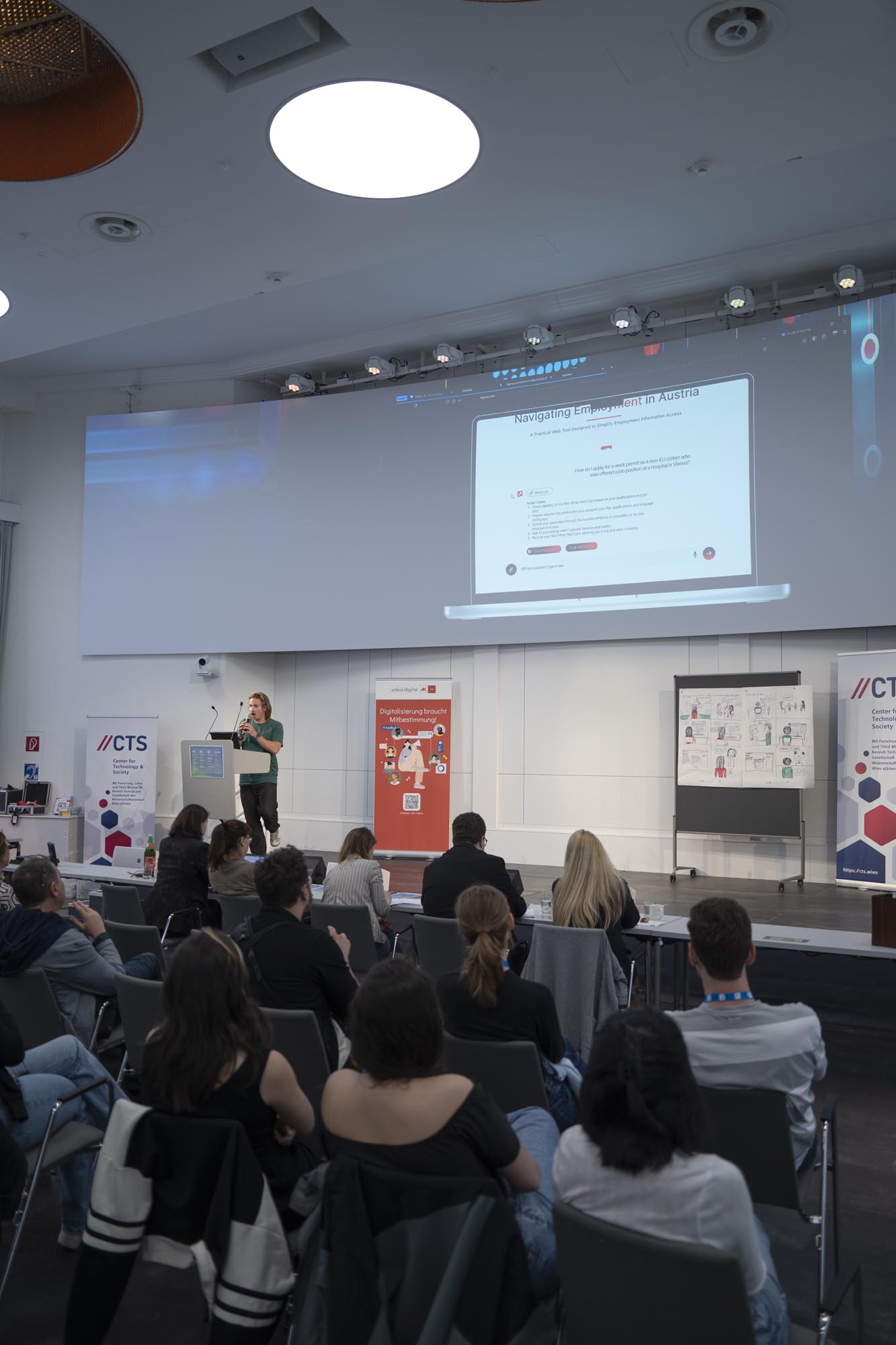
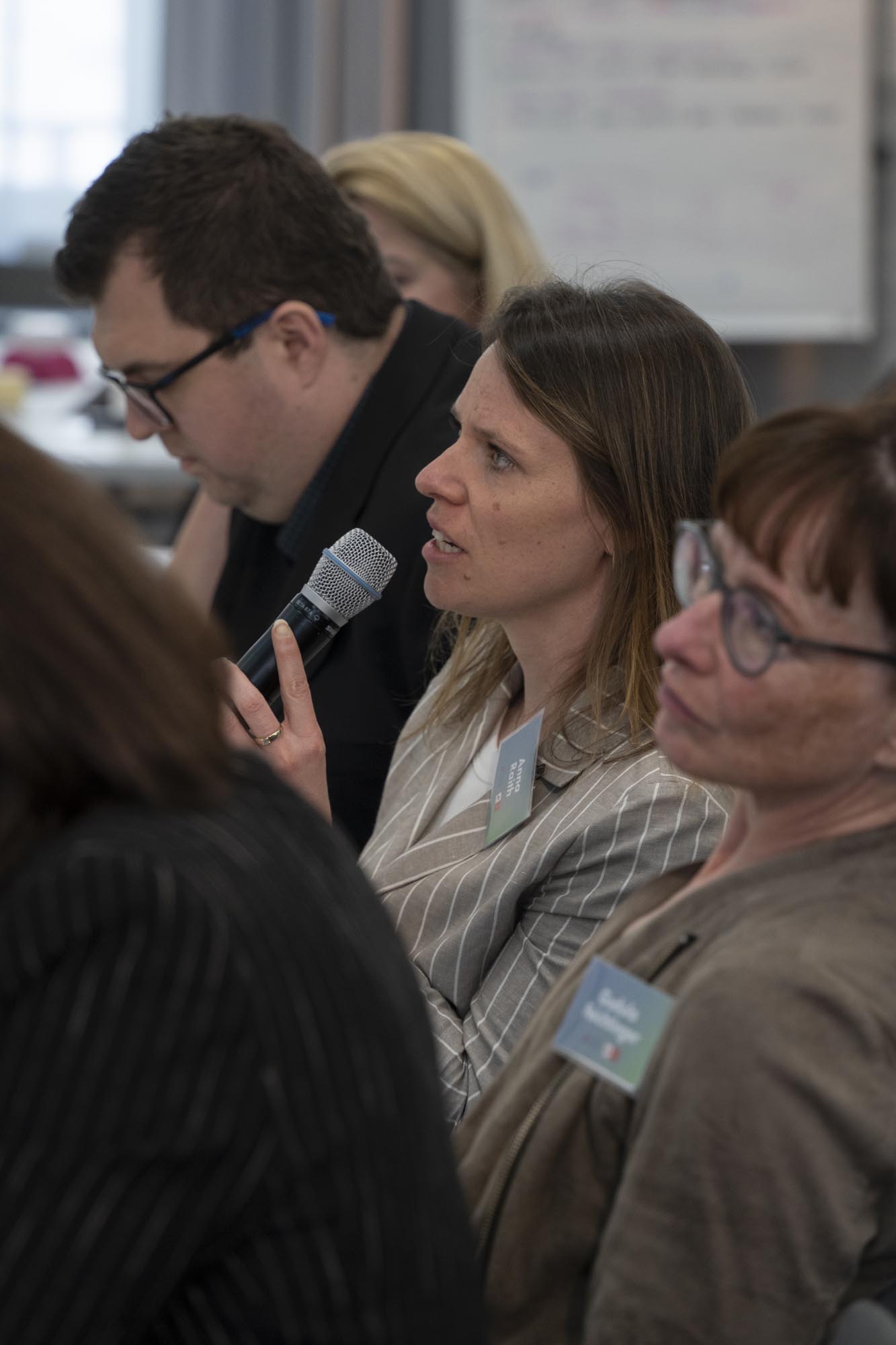
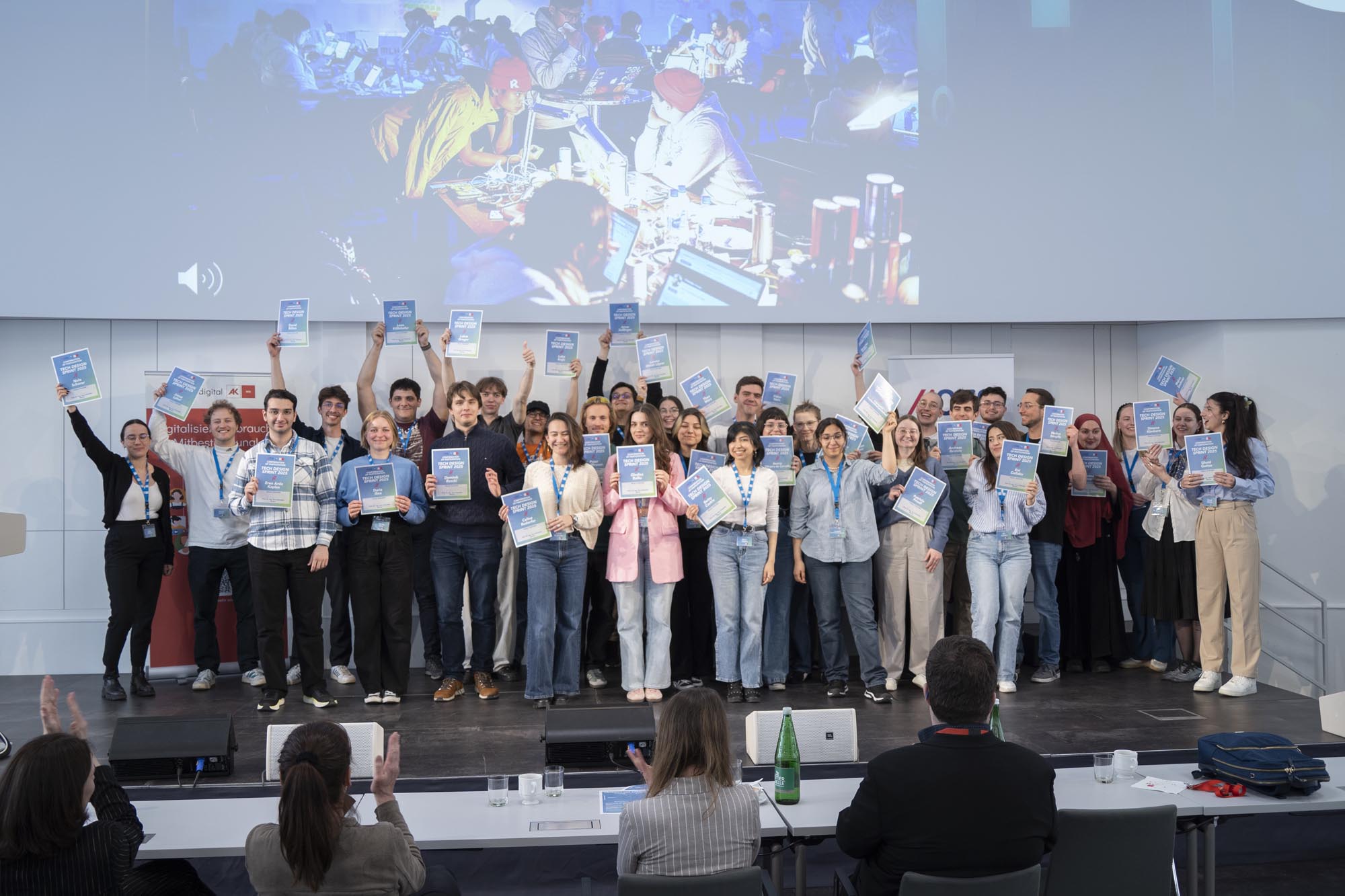
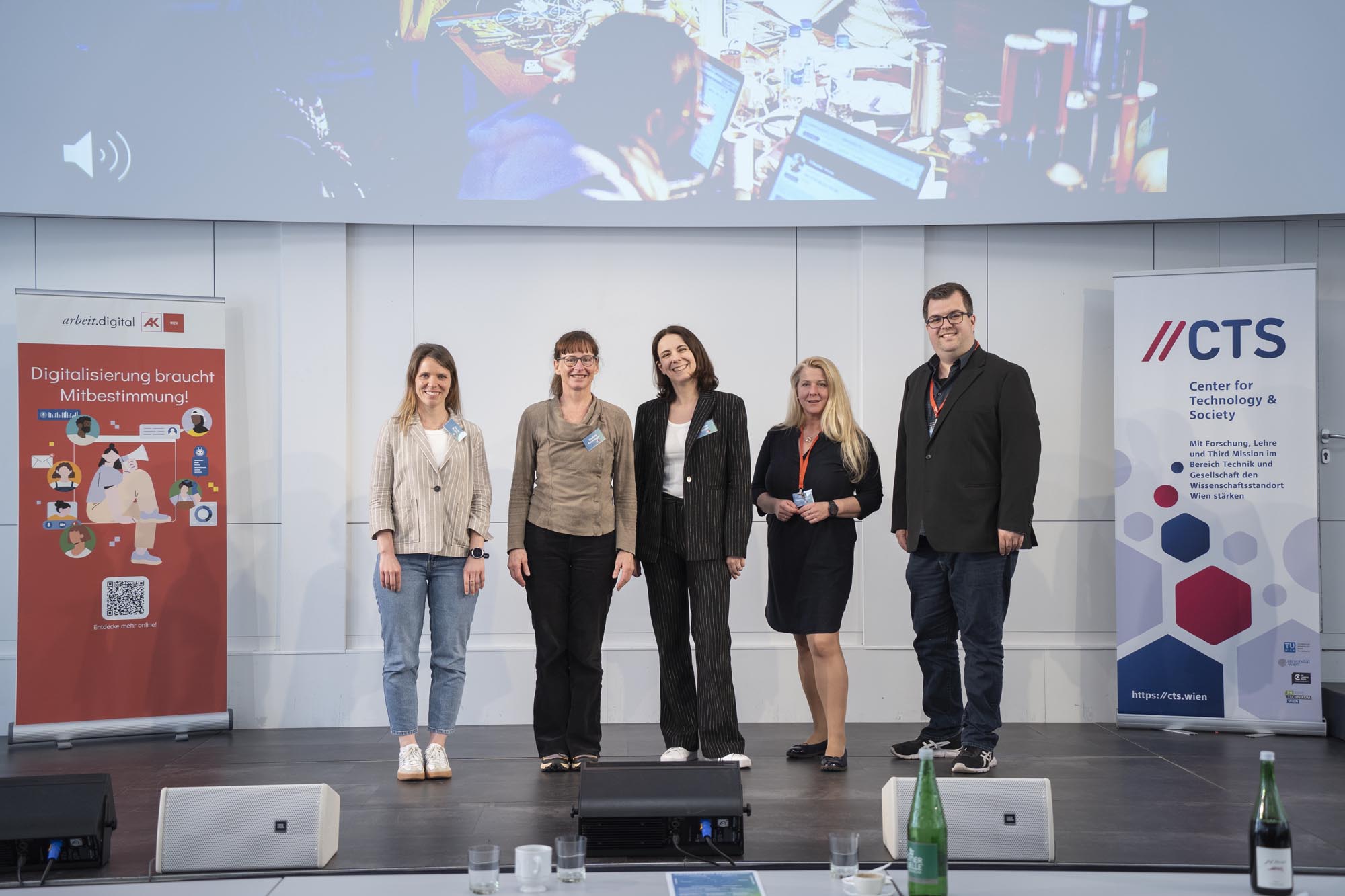
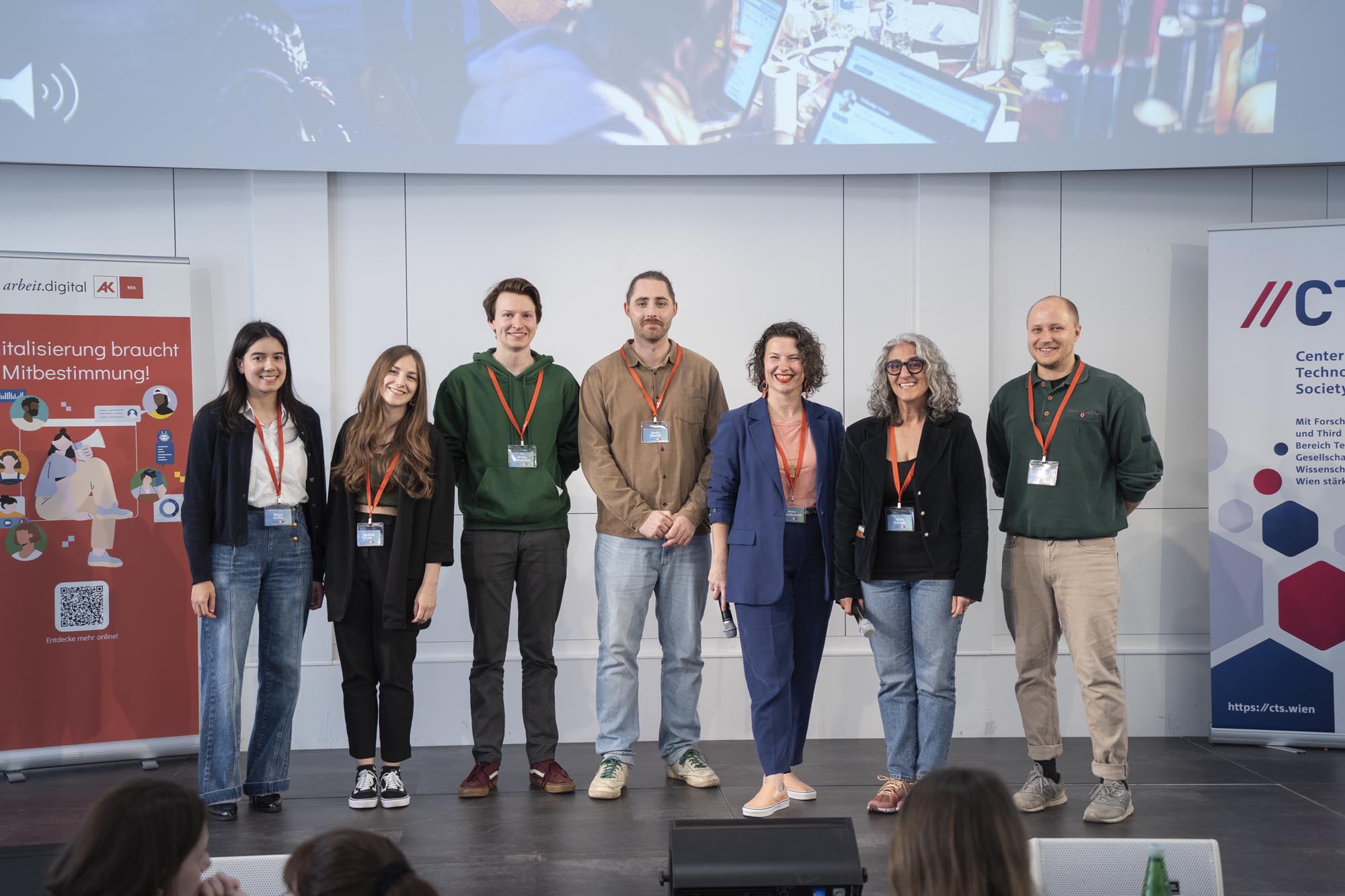
Weitere Informationen & Eindrücke
- News release by TU Wien – https://www.tuwien.at/en/tu-wien/news/news-articles/news/tech-design-sprint-2025
- Report by AK Wien – https://wien.arbeiterkammer.at/interessenvertretung/arbeitdigital/events/Tech-Design-Sprint-2025.html
- Pitch videos – coming soon
- Eventinformation: https://cts.wien/misc/20250127_akdesignsprint2025/
- Information about the TU Twente visit: coming soon
- Tech Design Sprint 2024: https://cts.wien/misc/20240920_cts_ak_designsprint_2024/
- Tech Design Sprint 2022 (Hackathon of the Many): https://cts.wien/misc/20220927akhackathon/